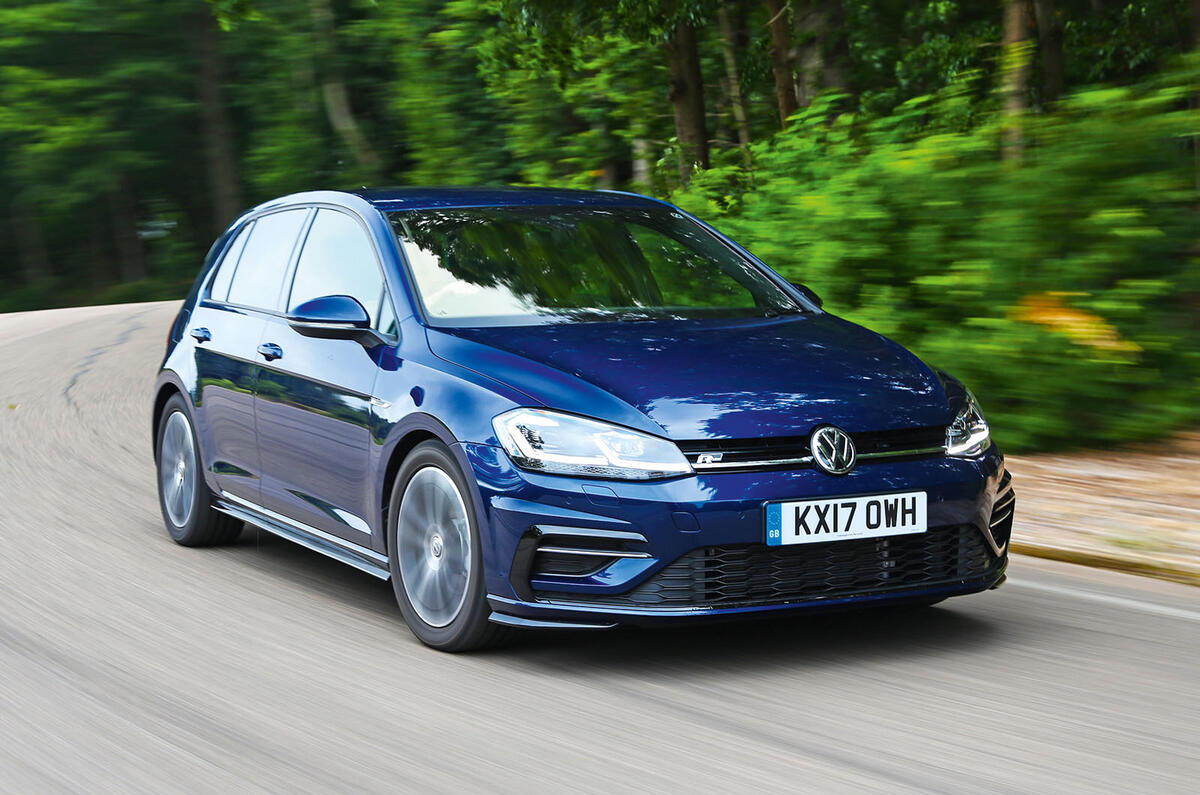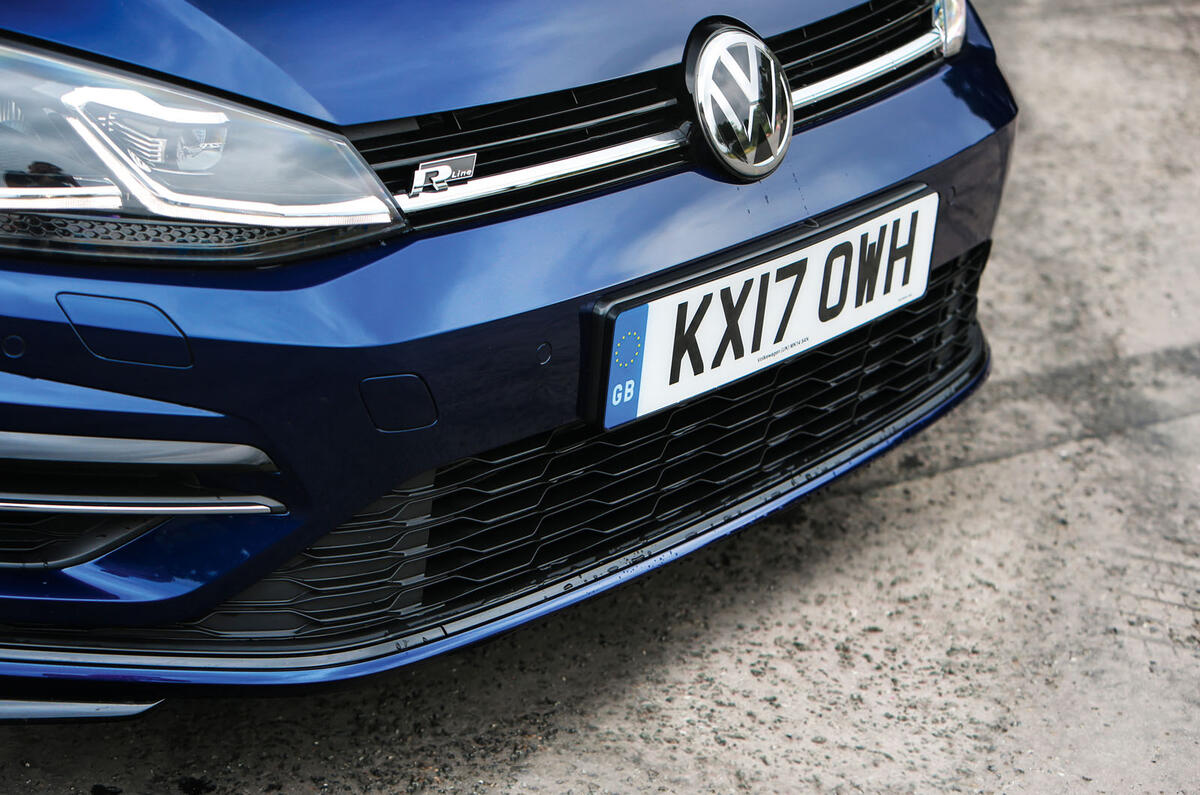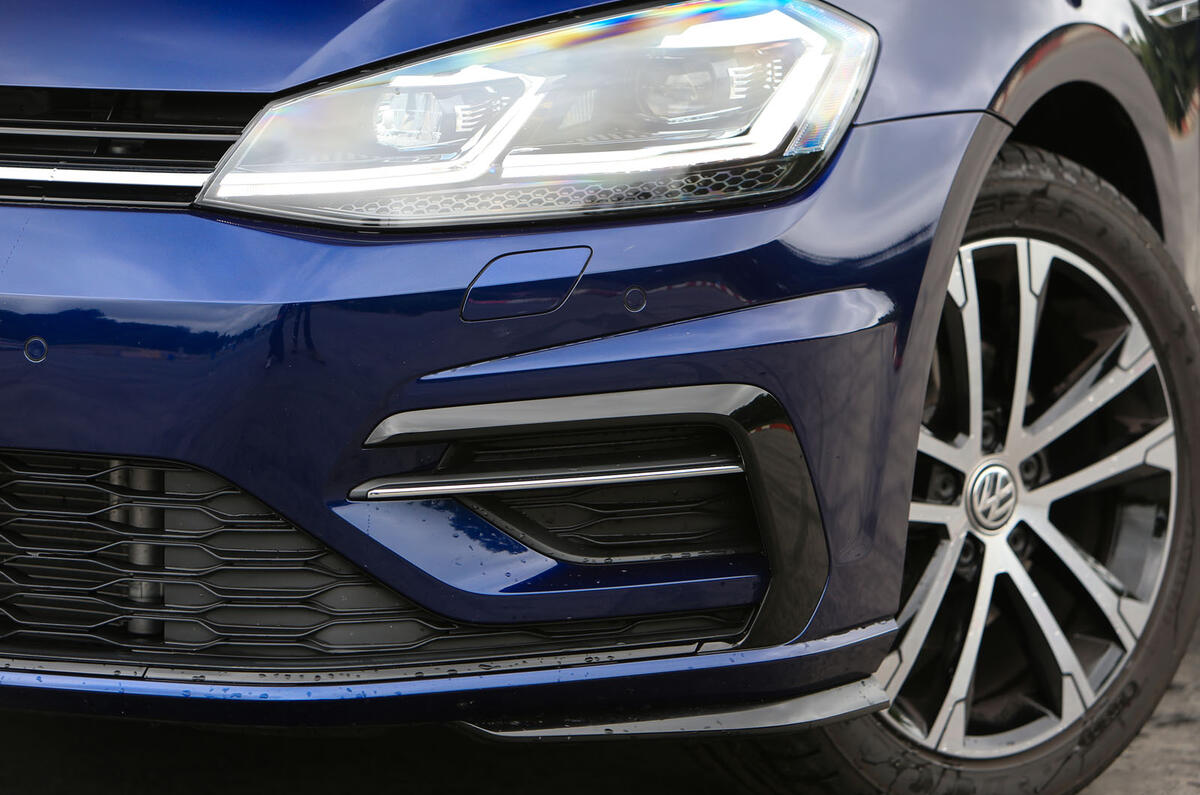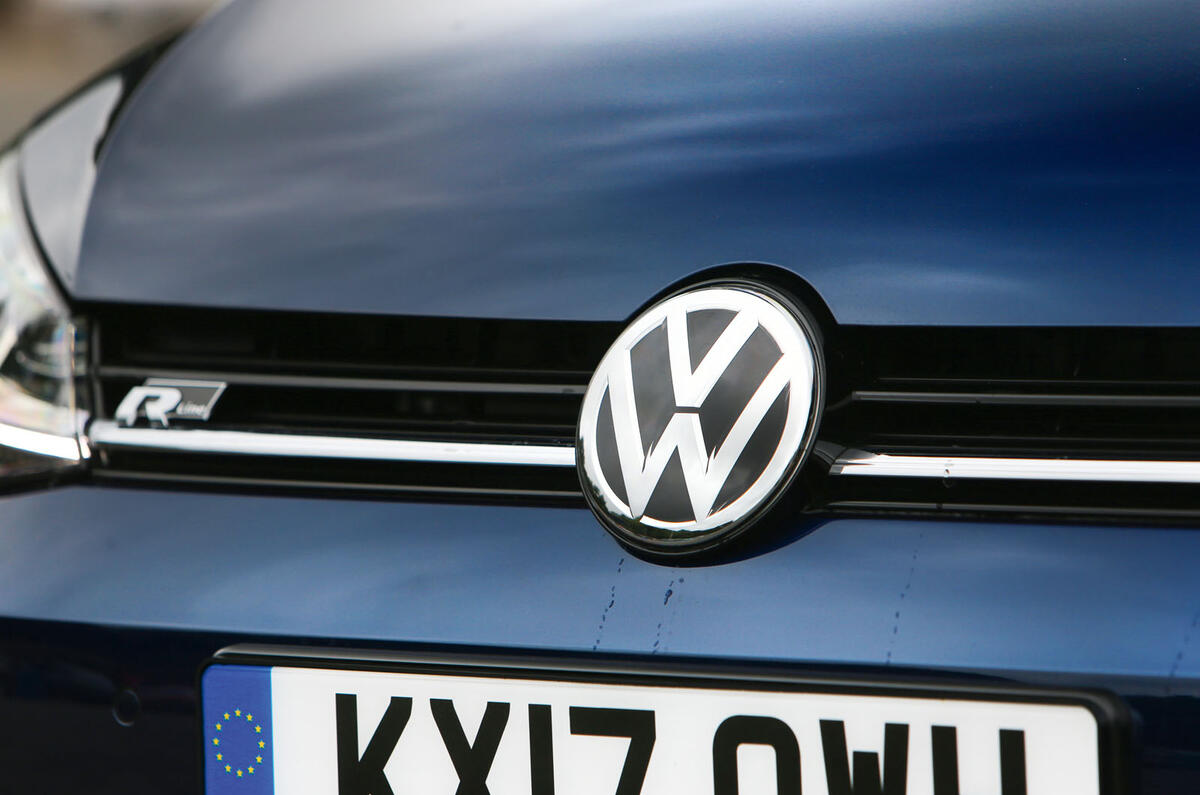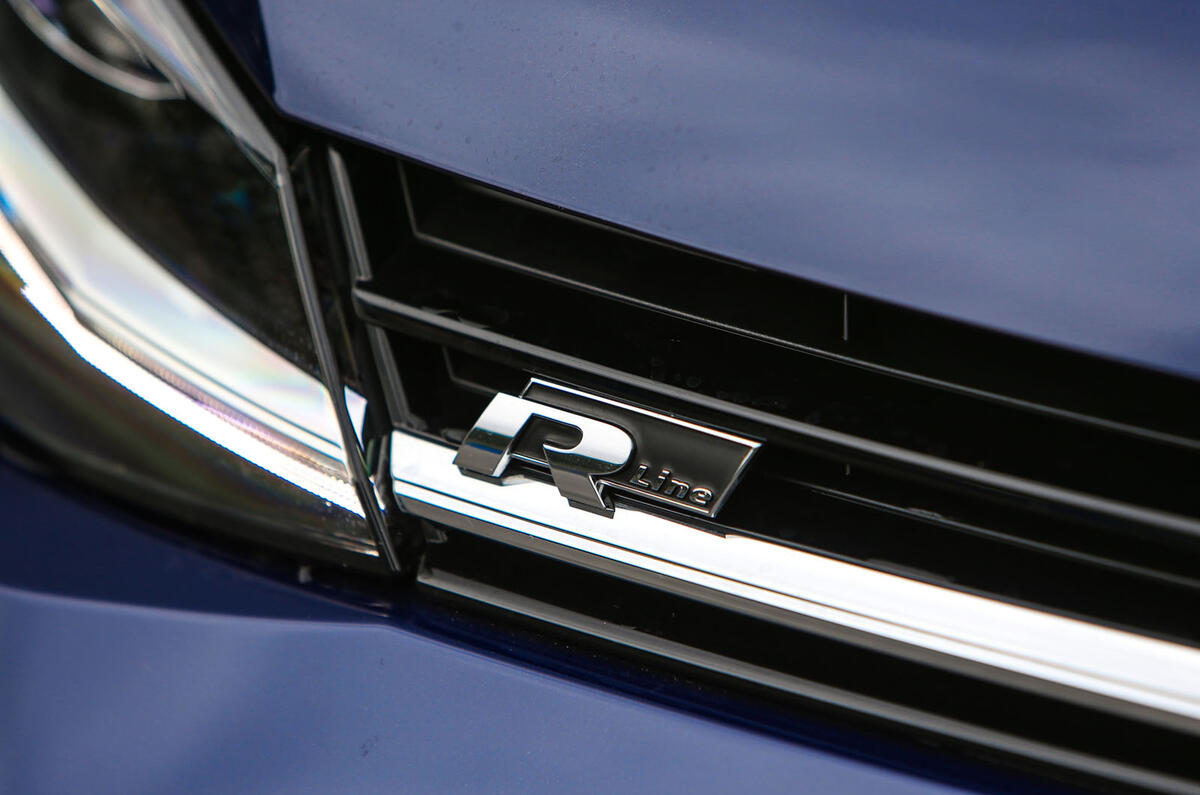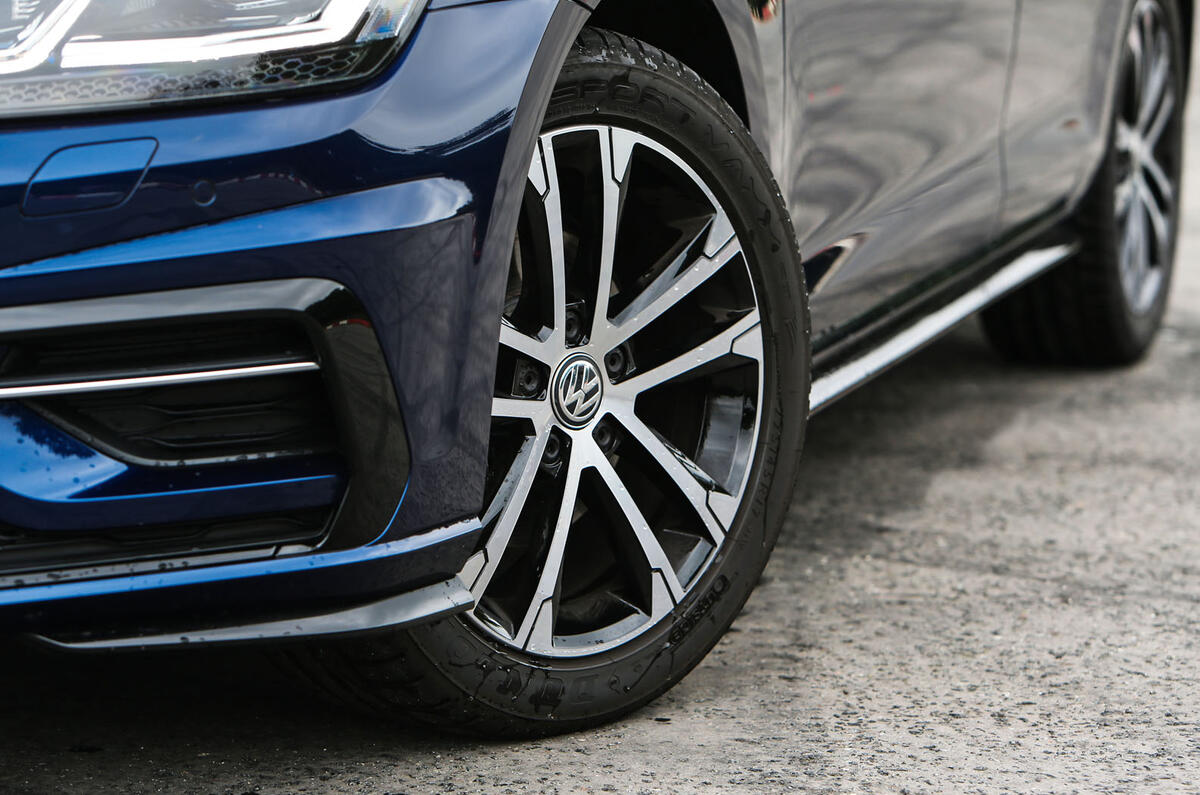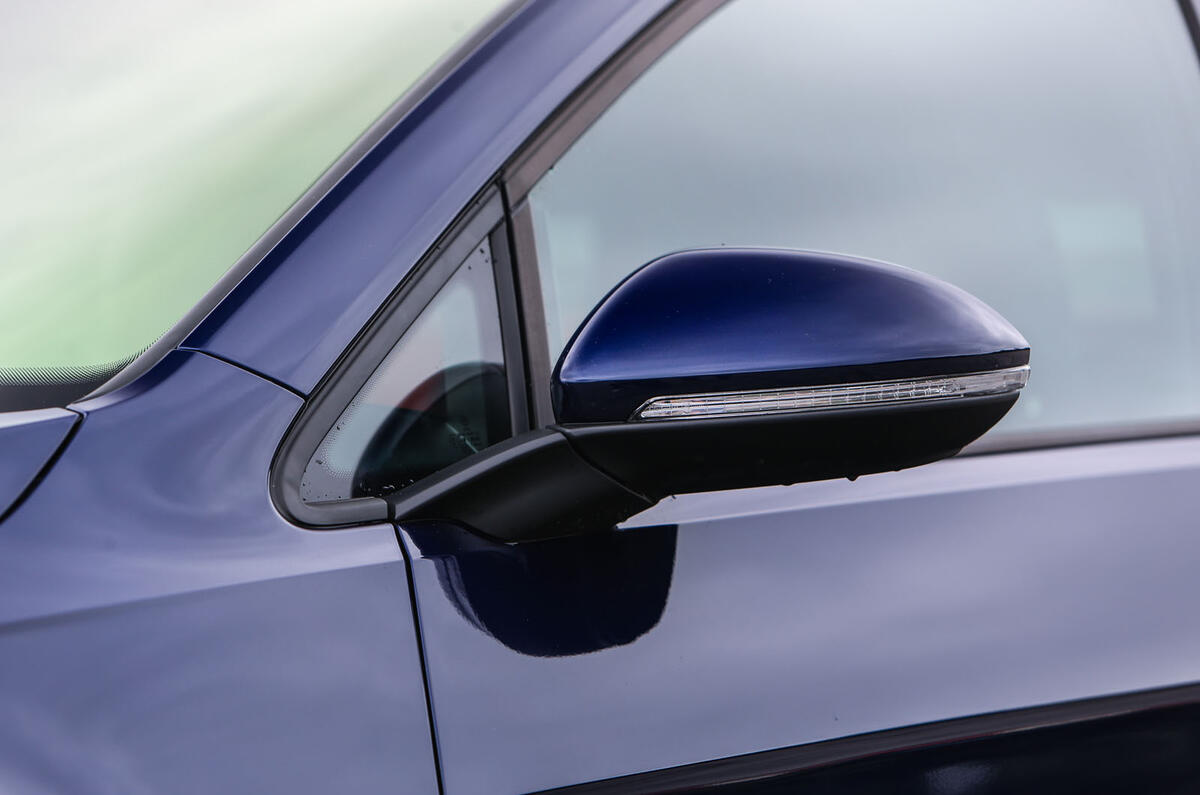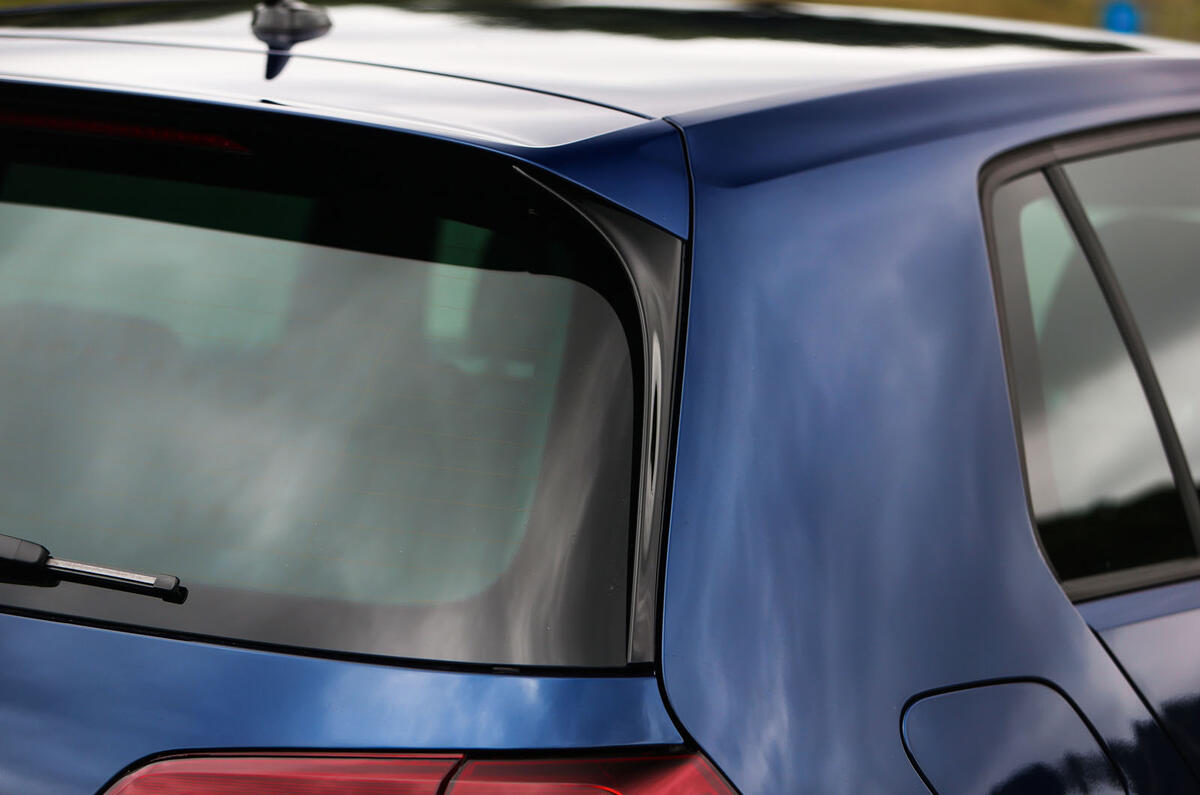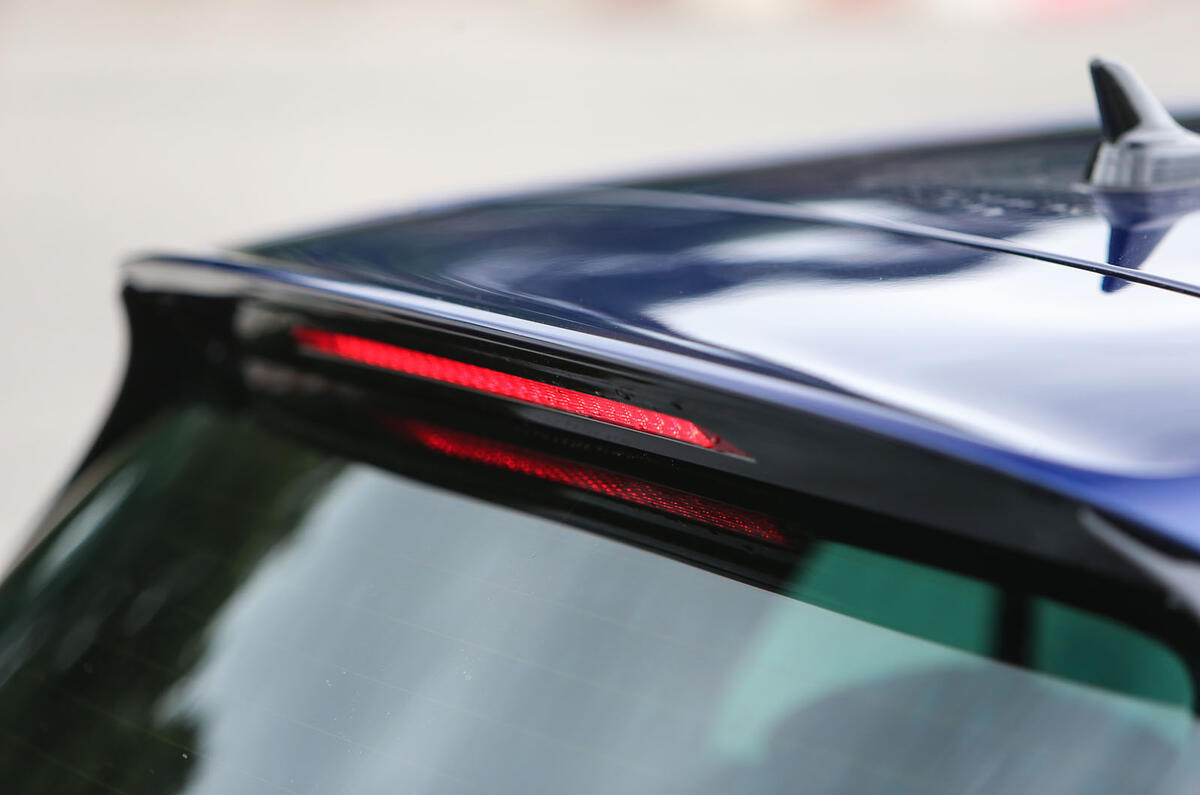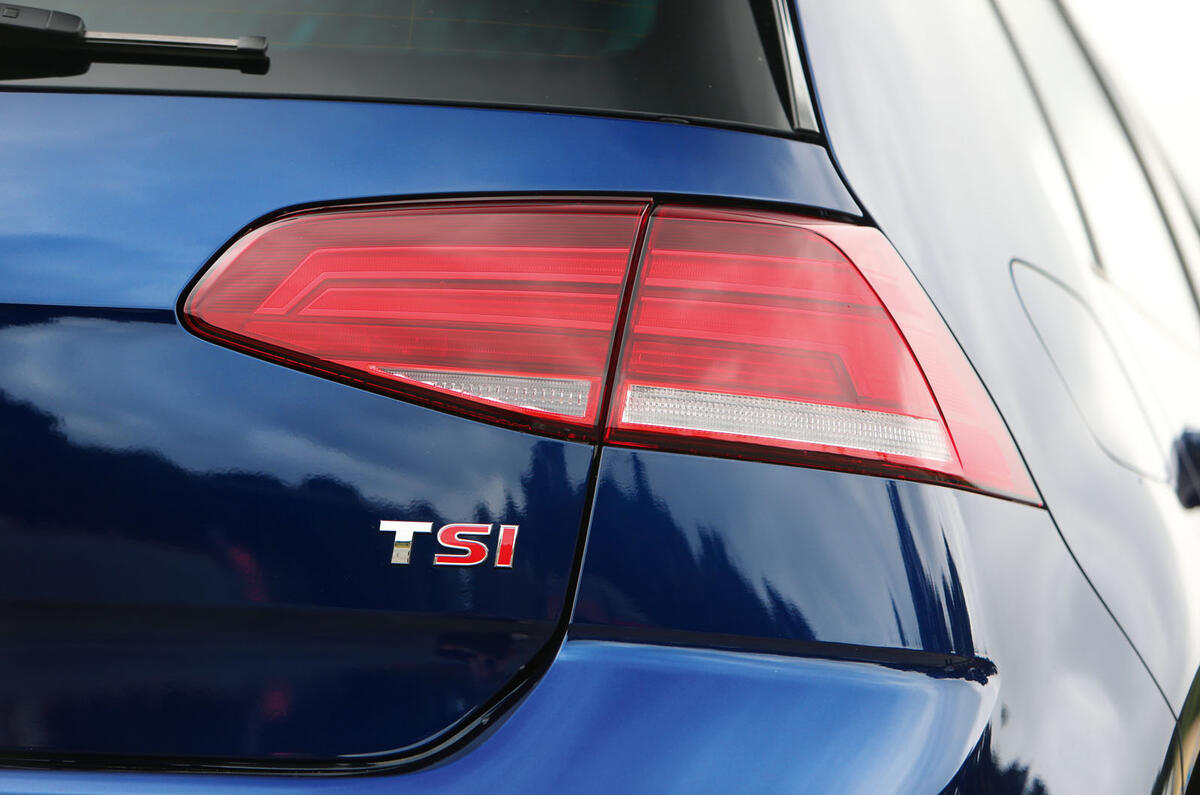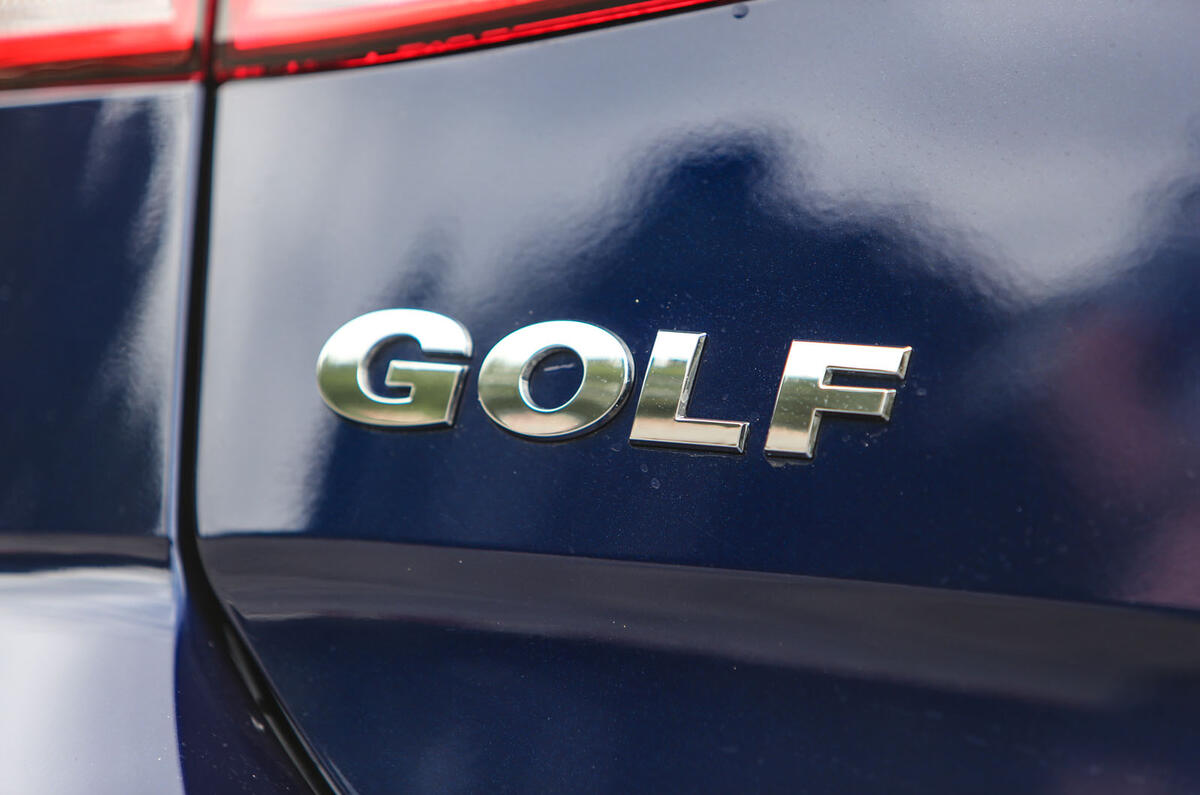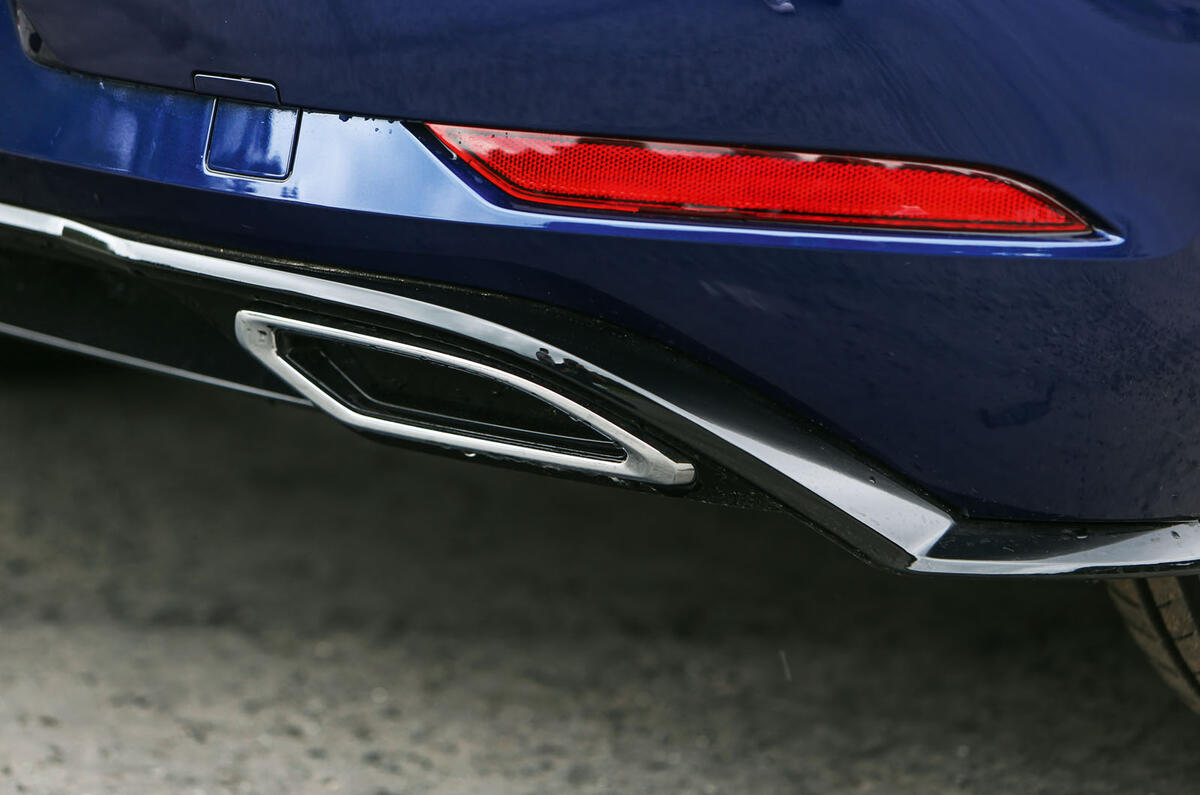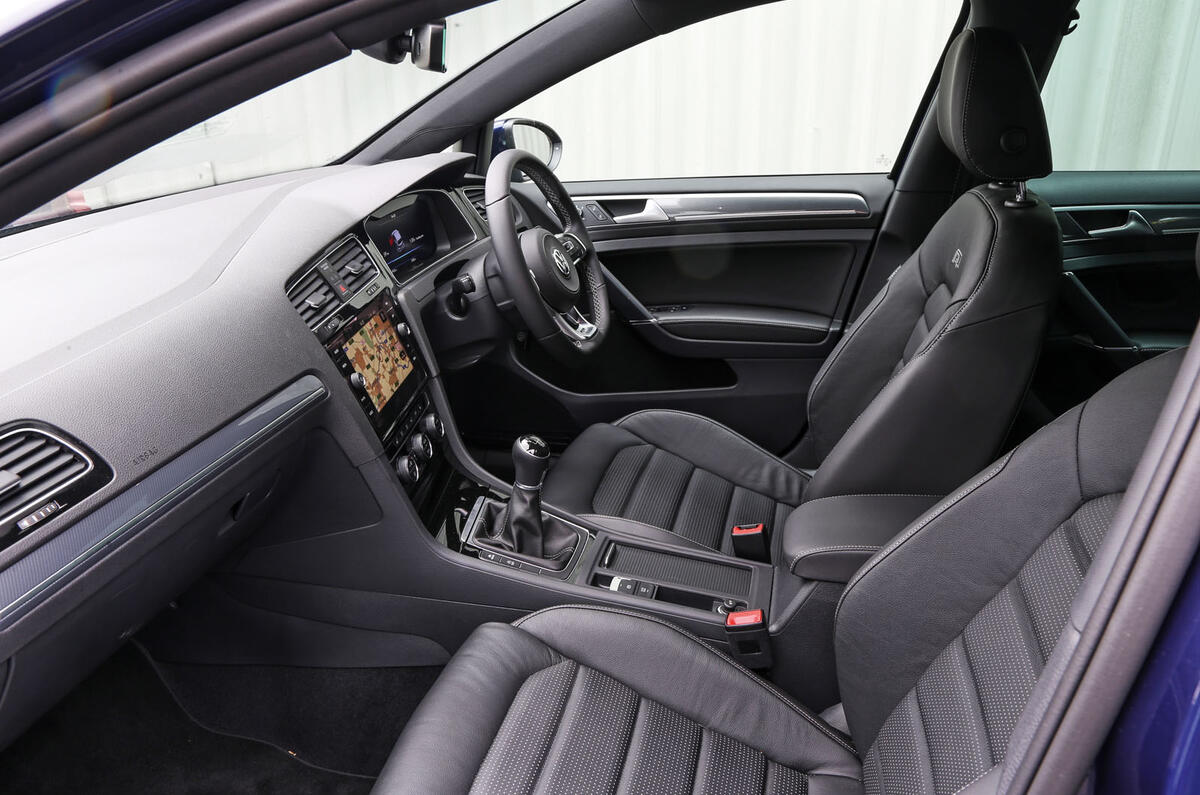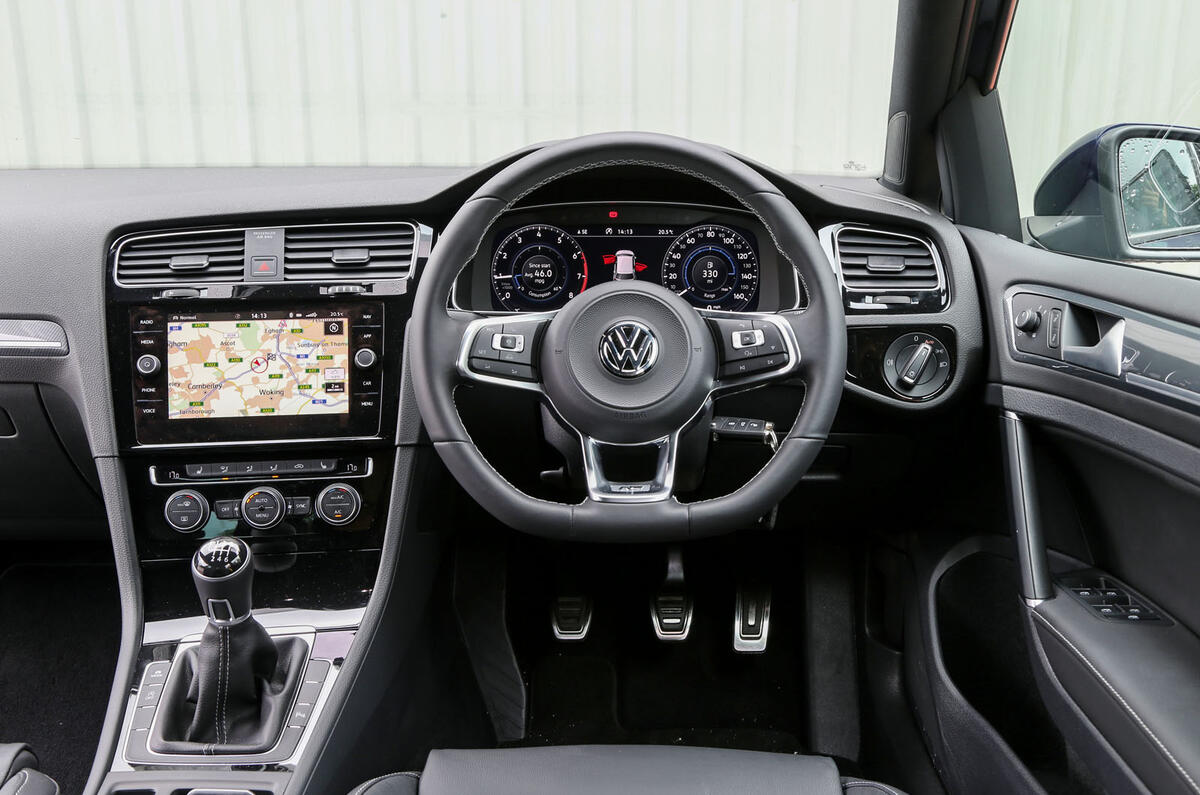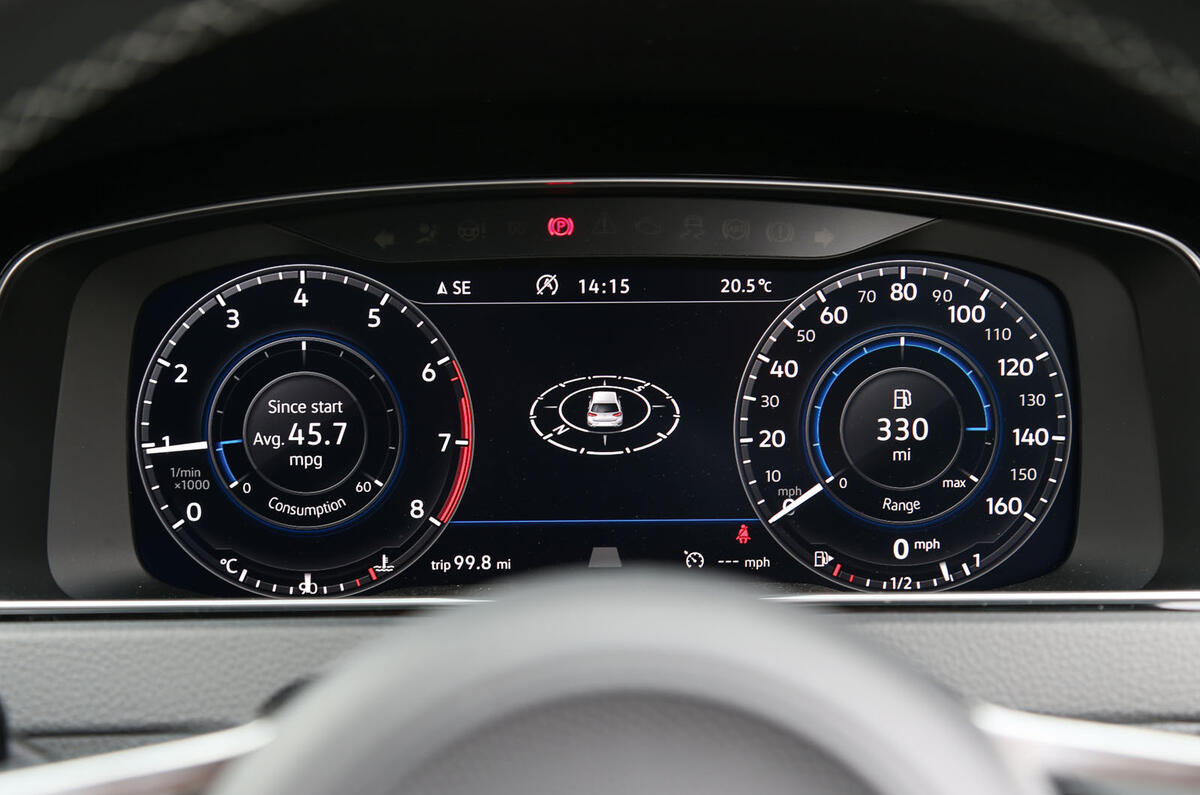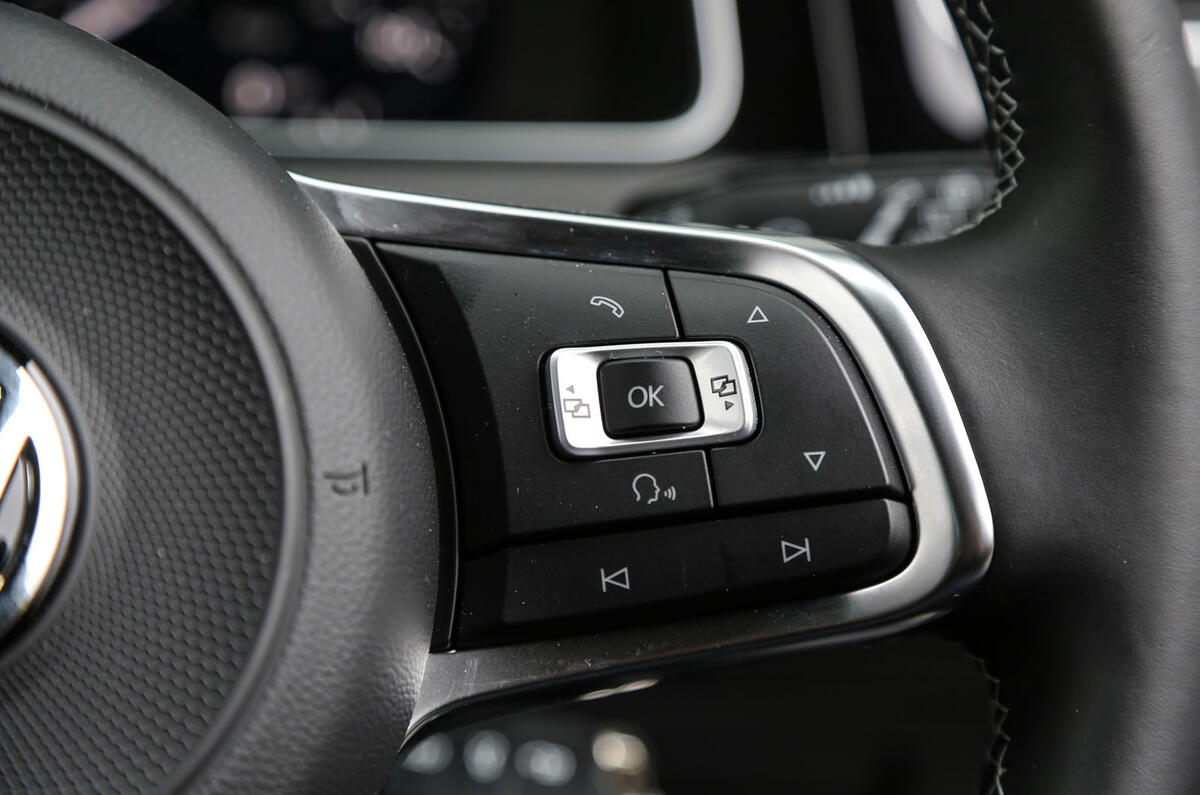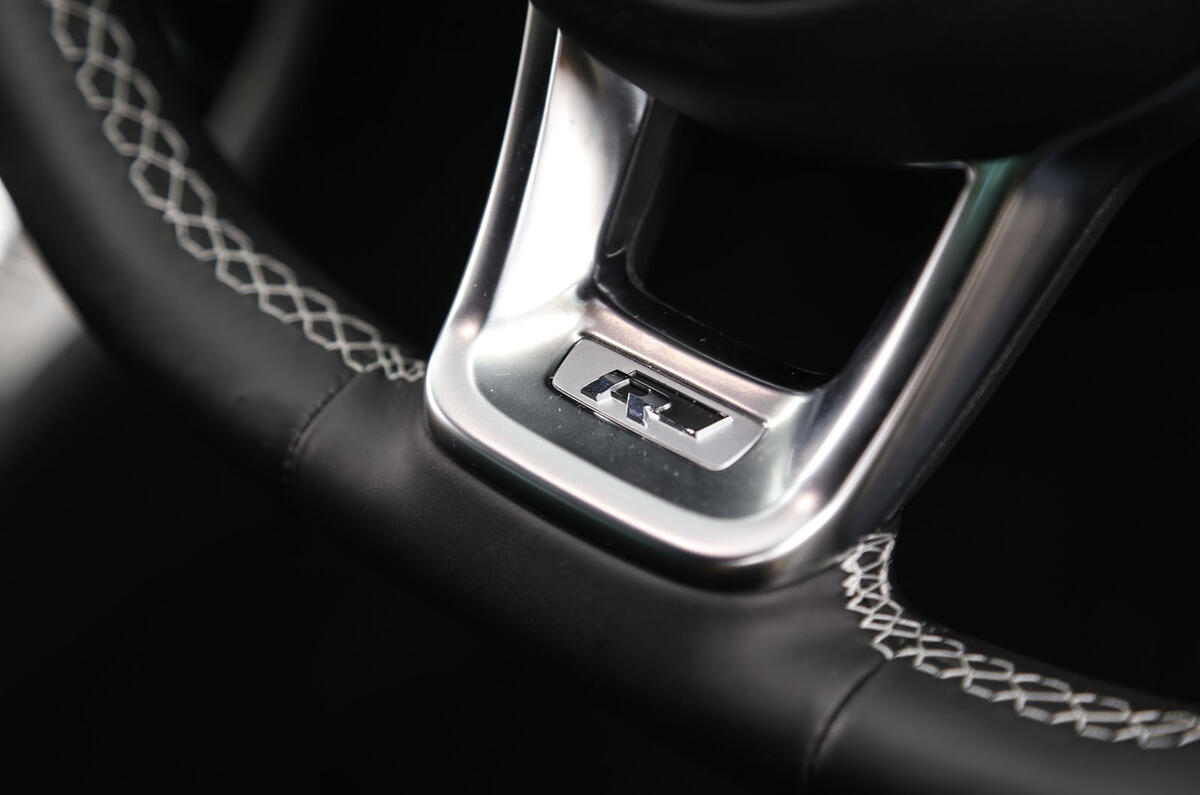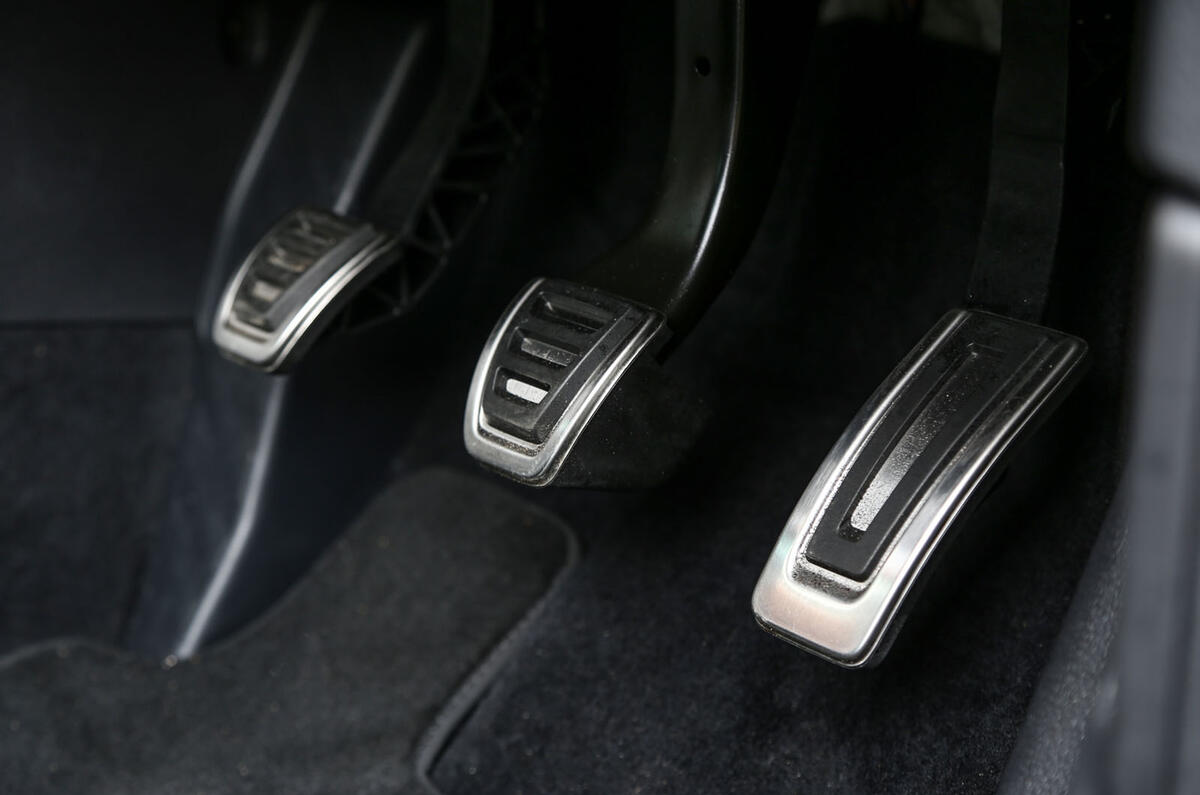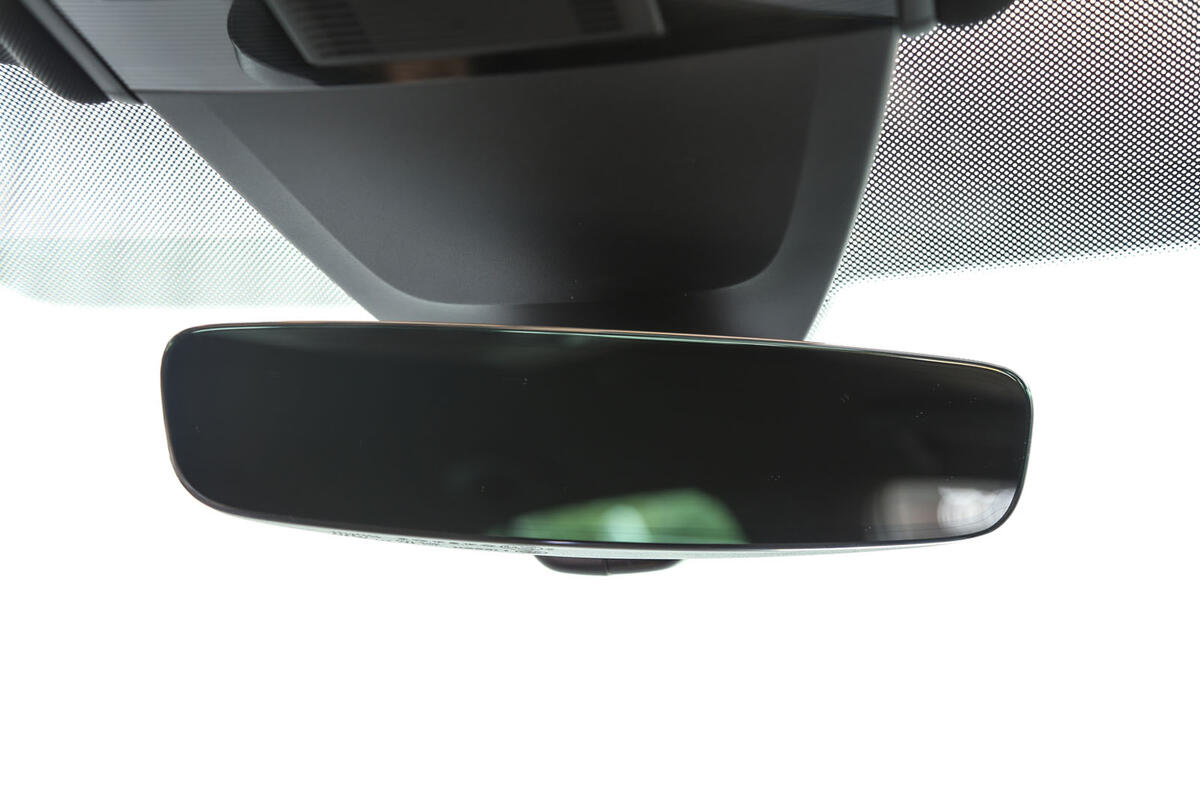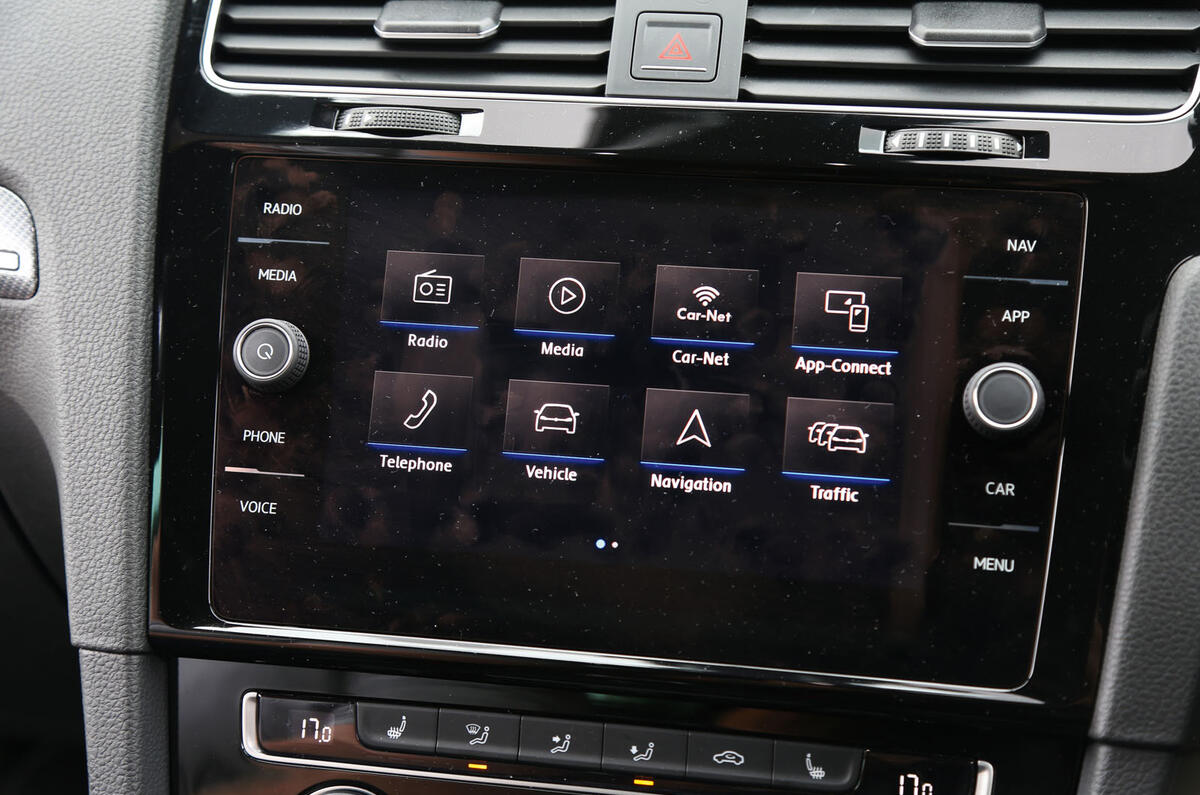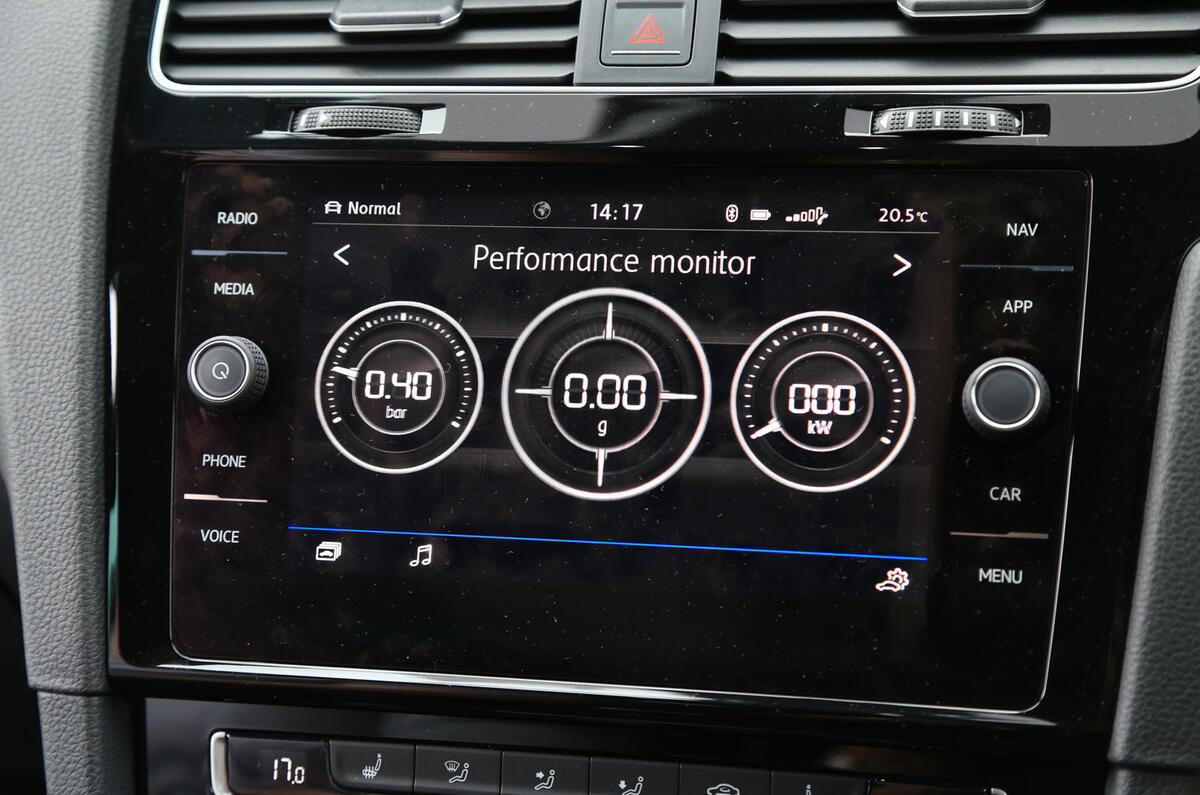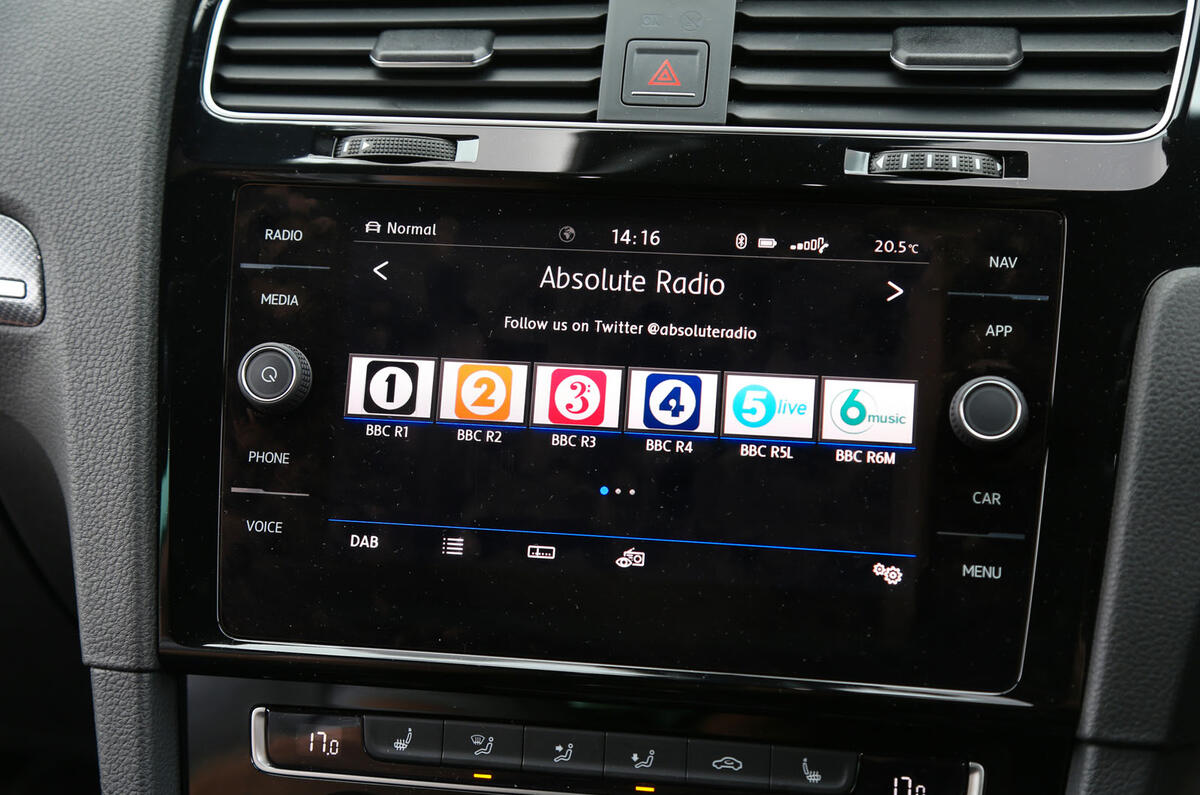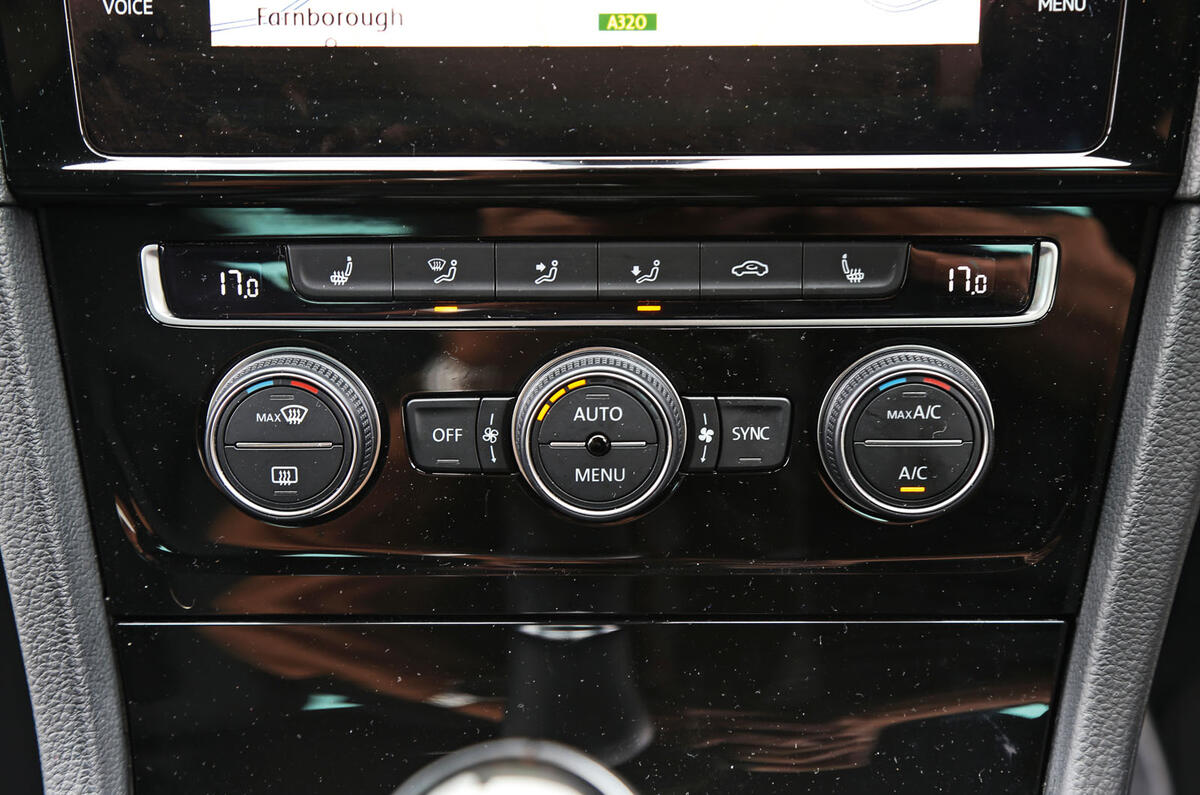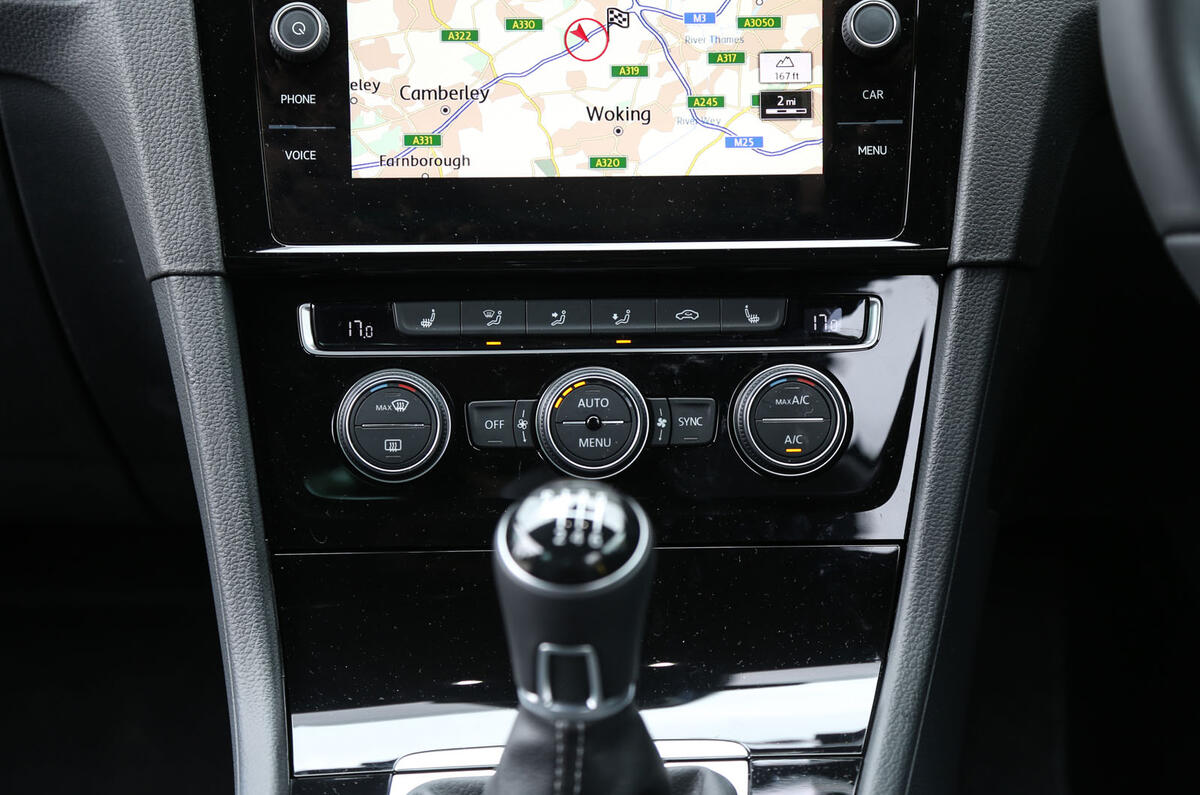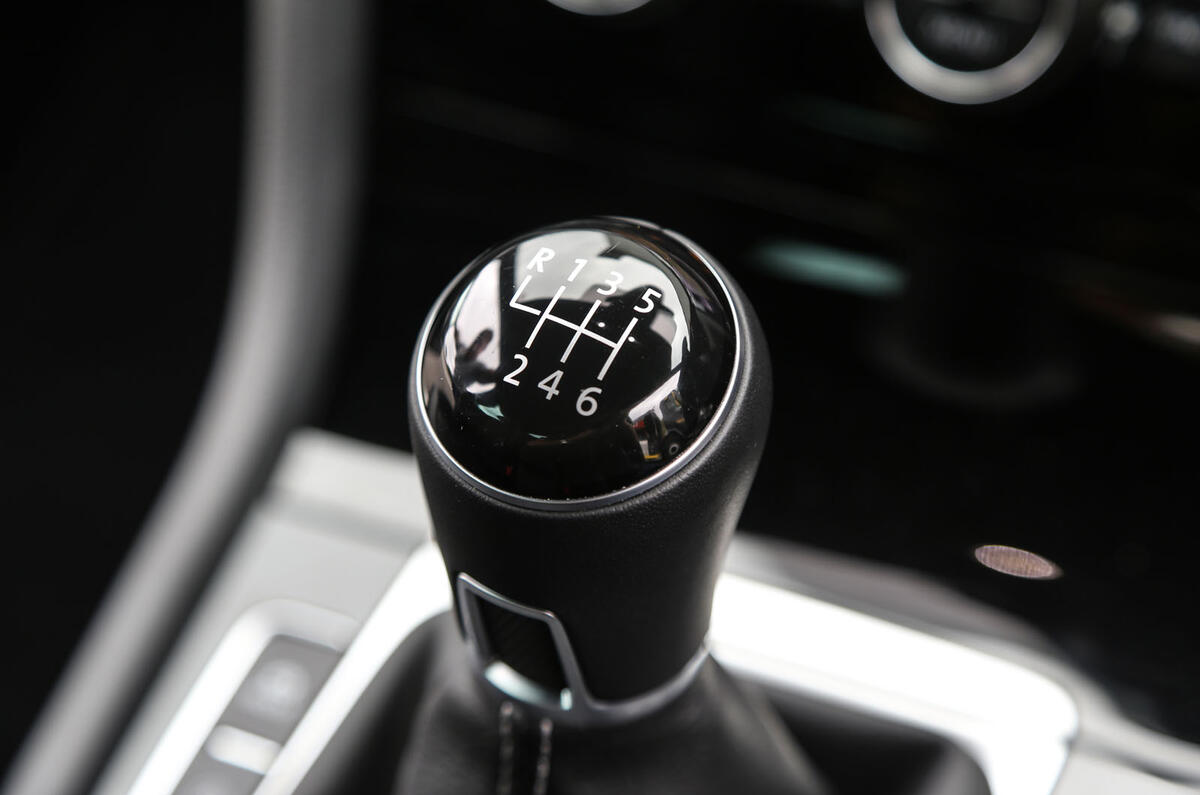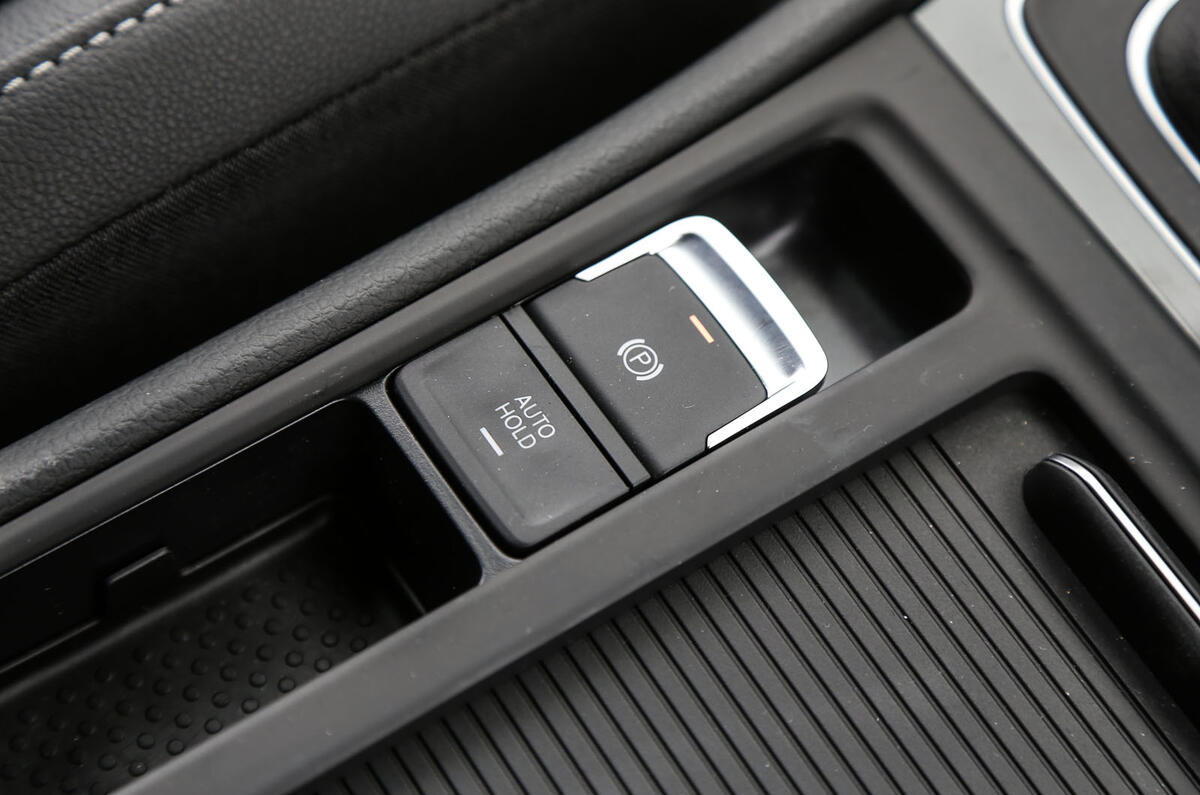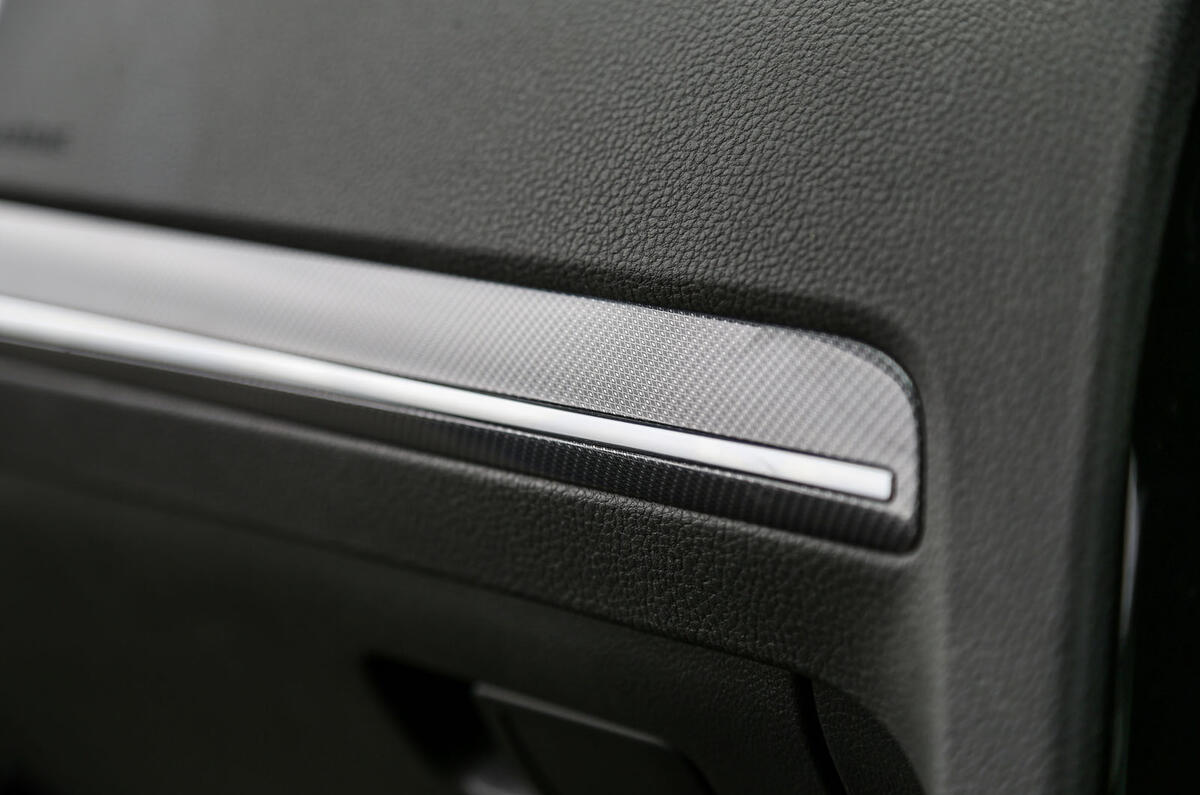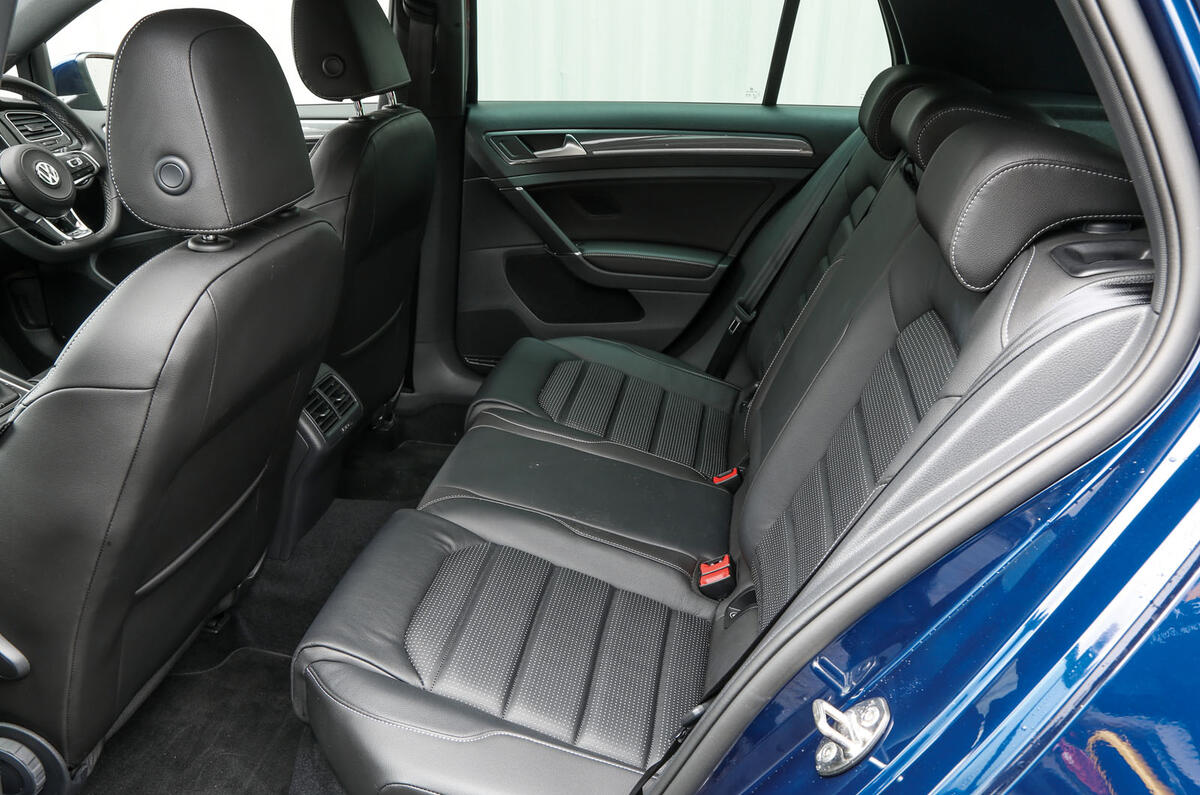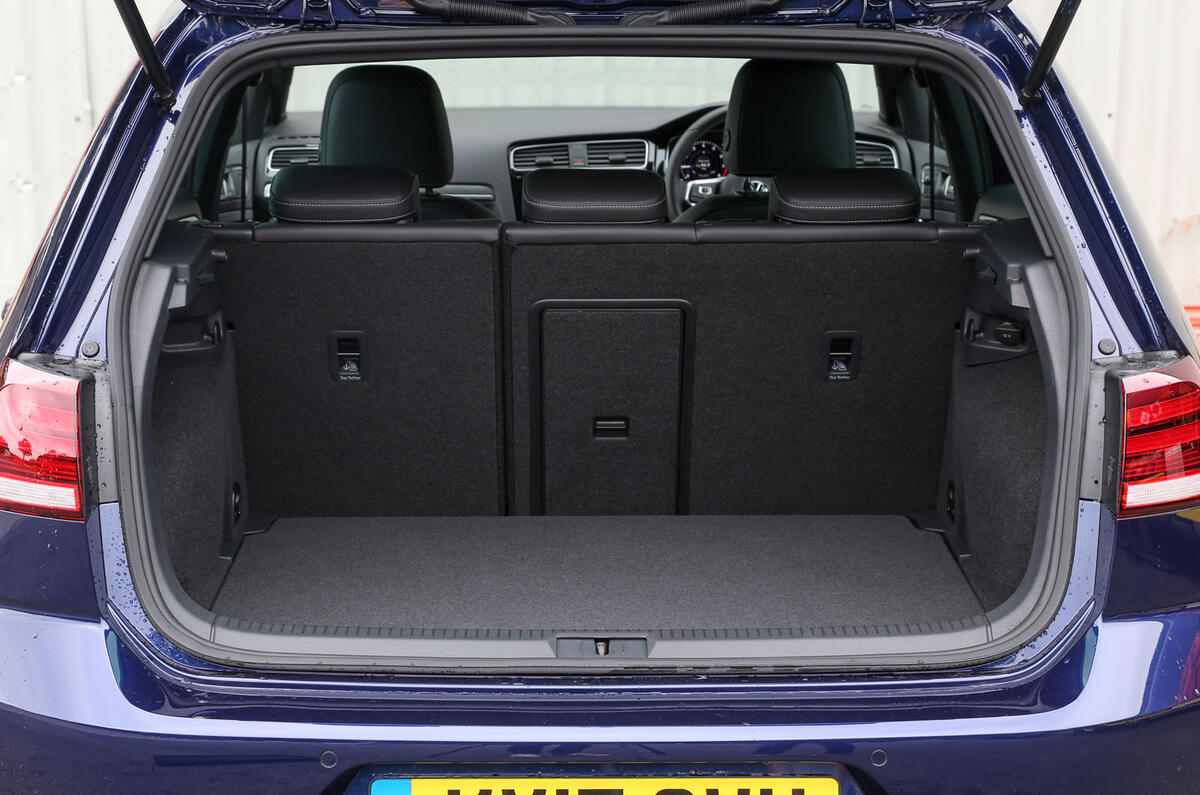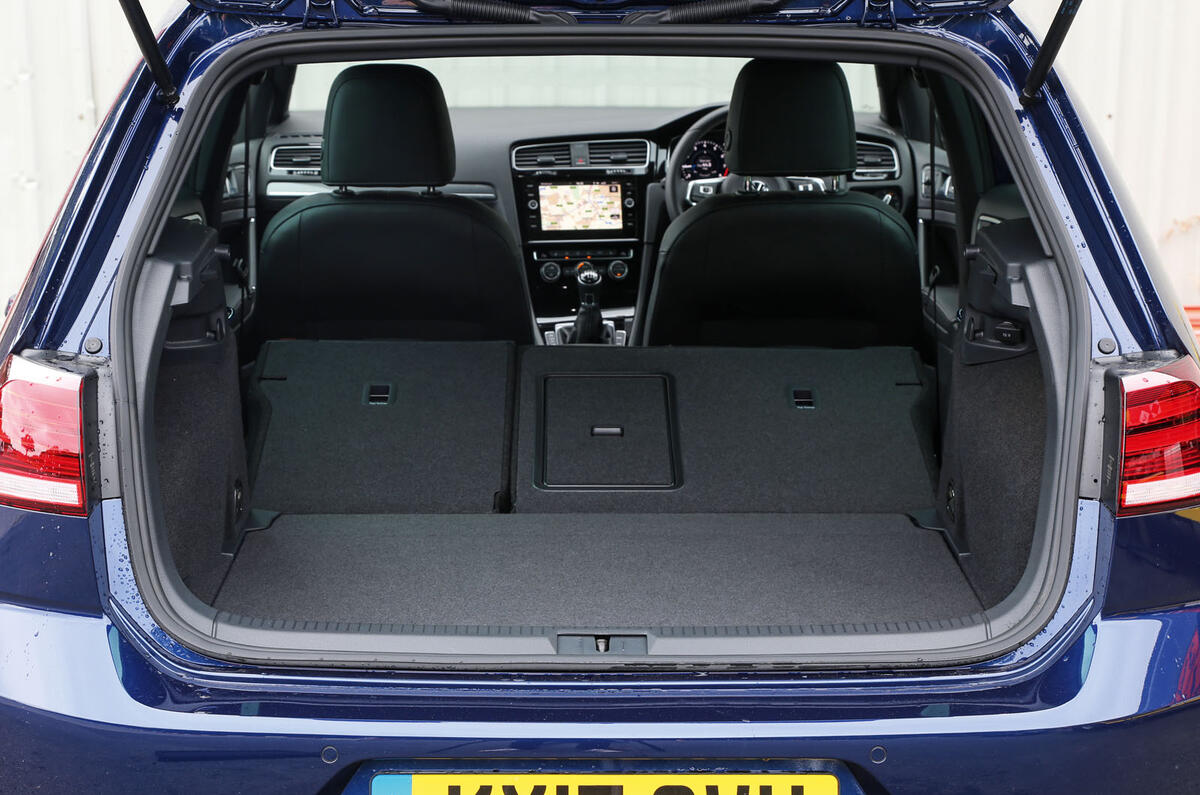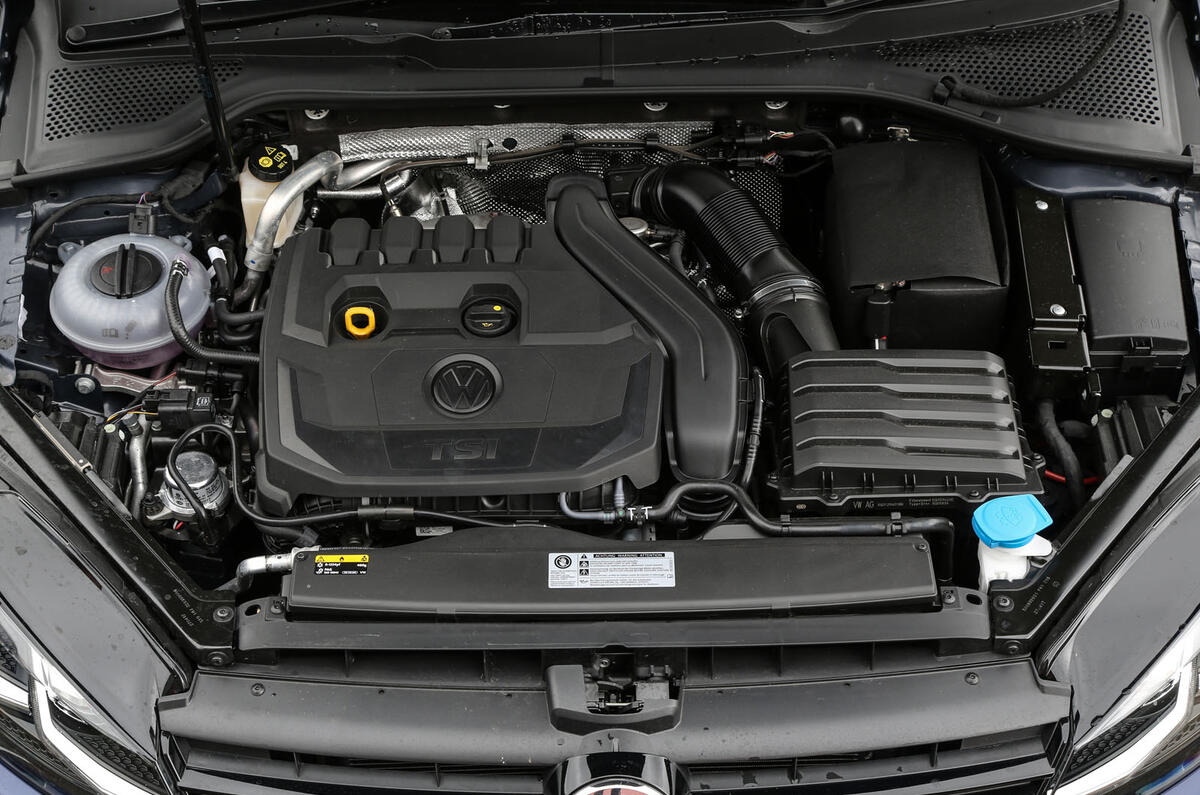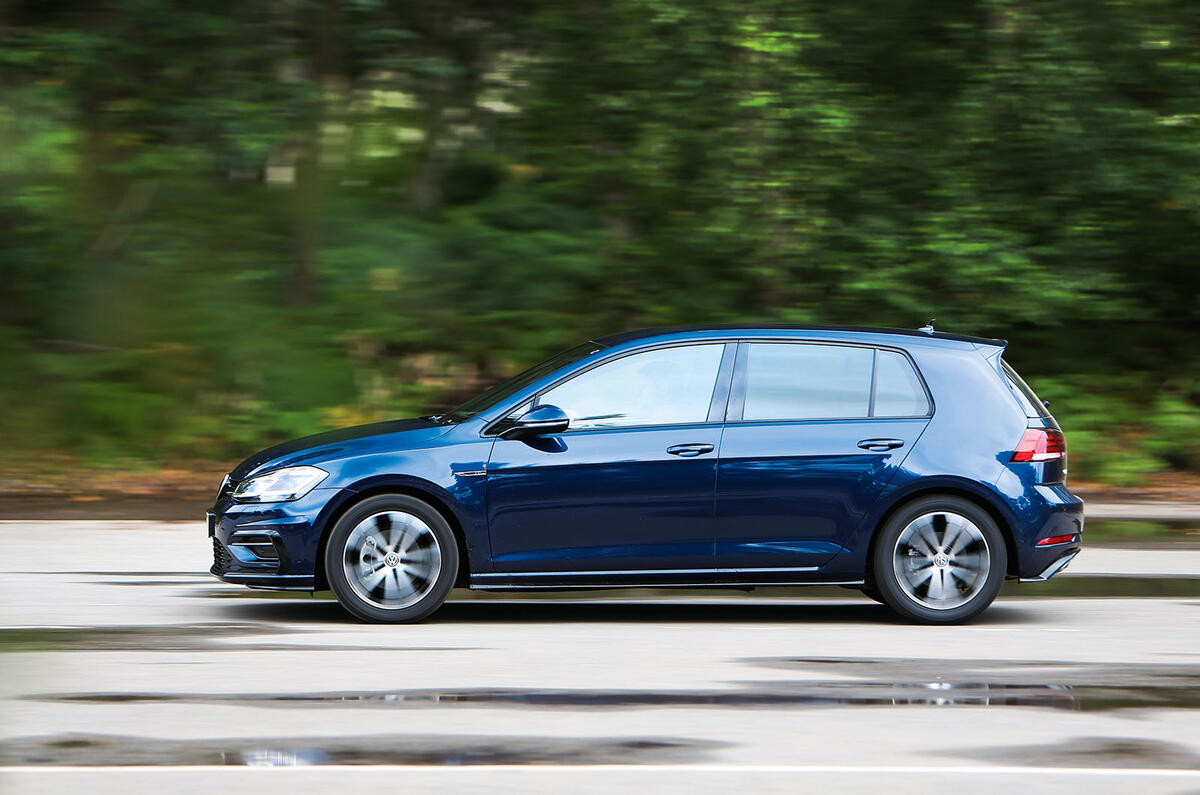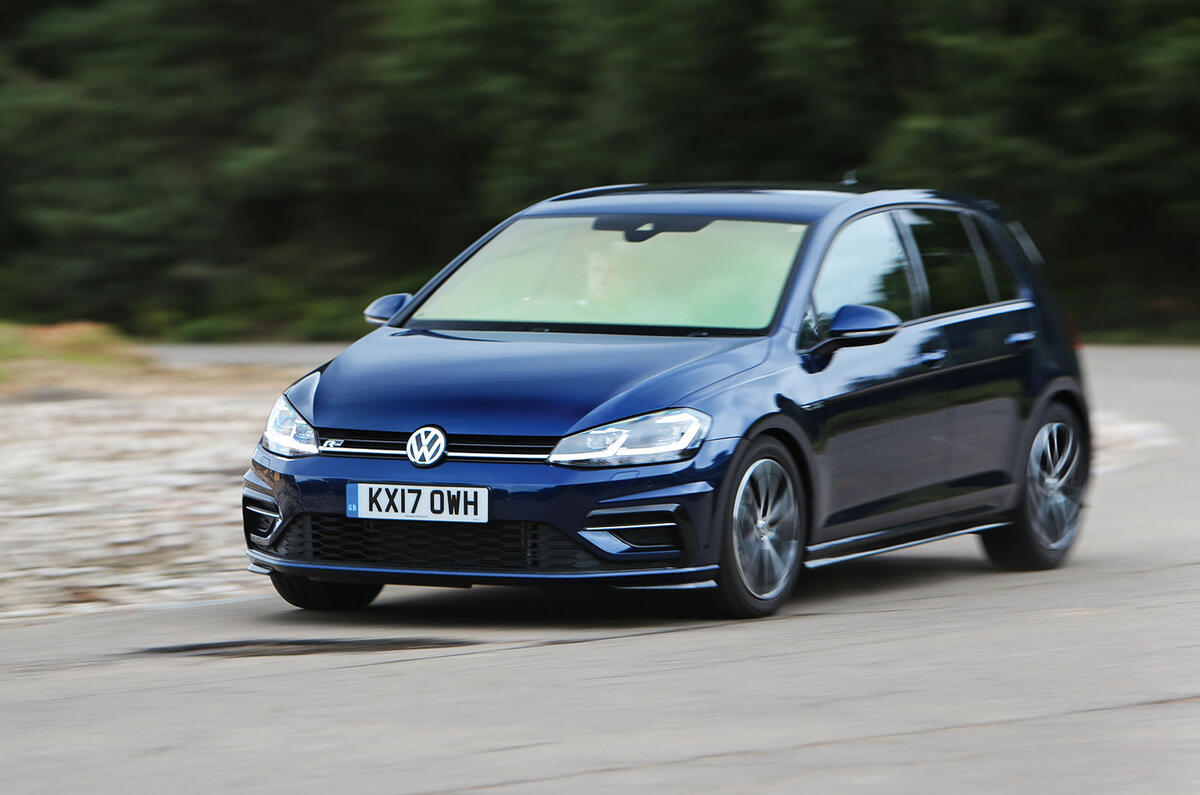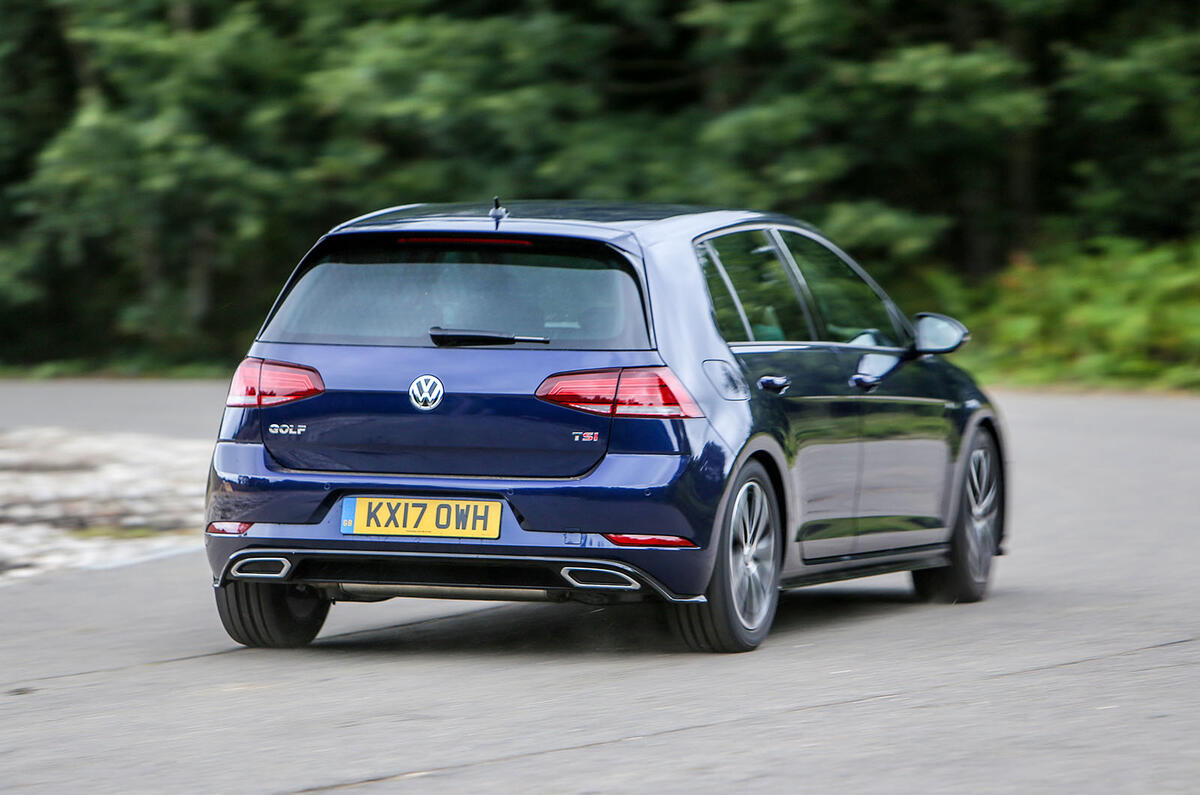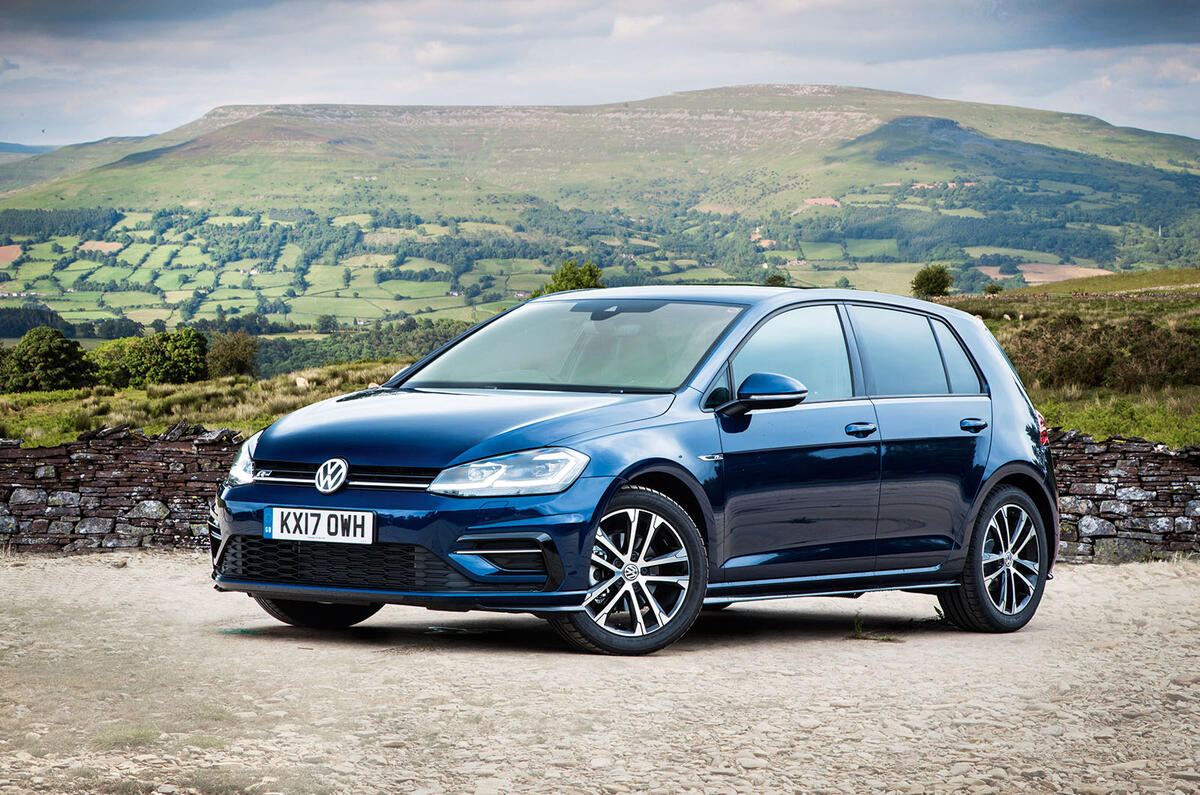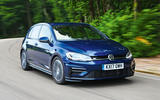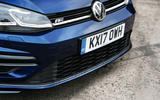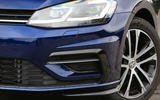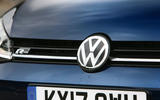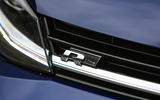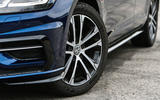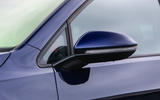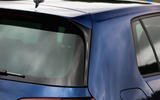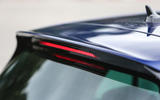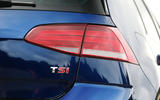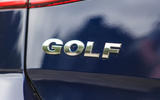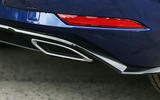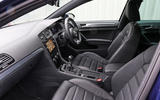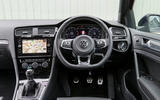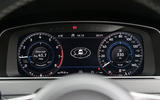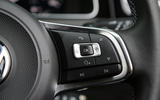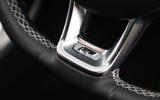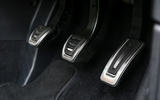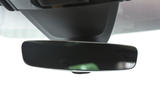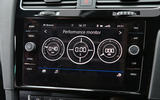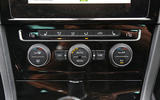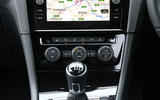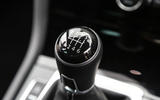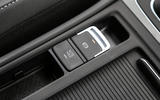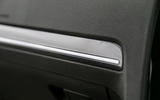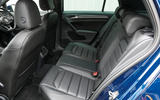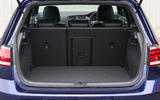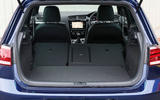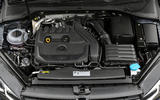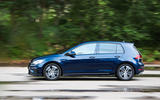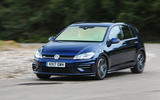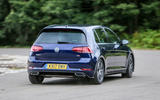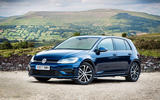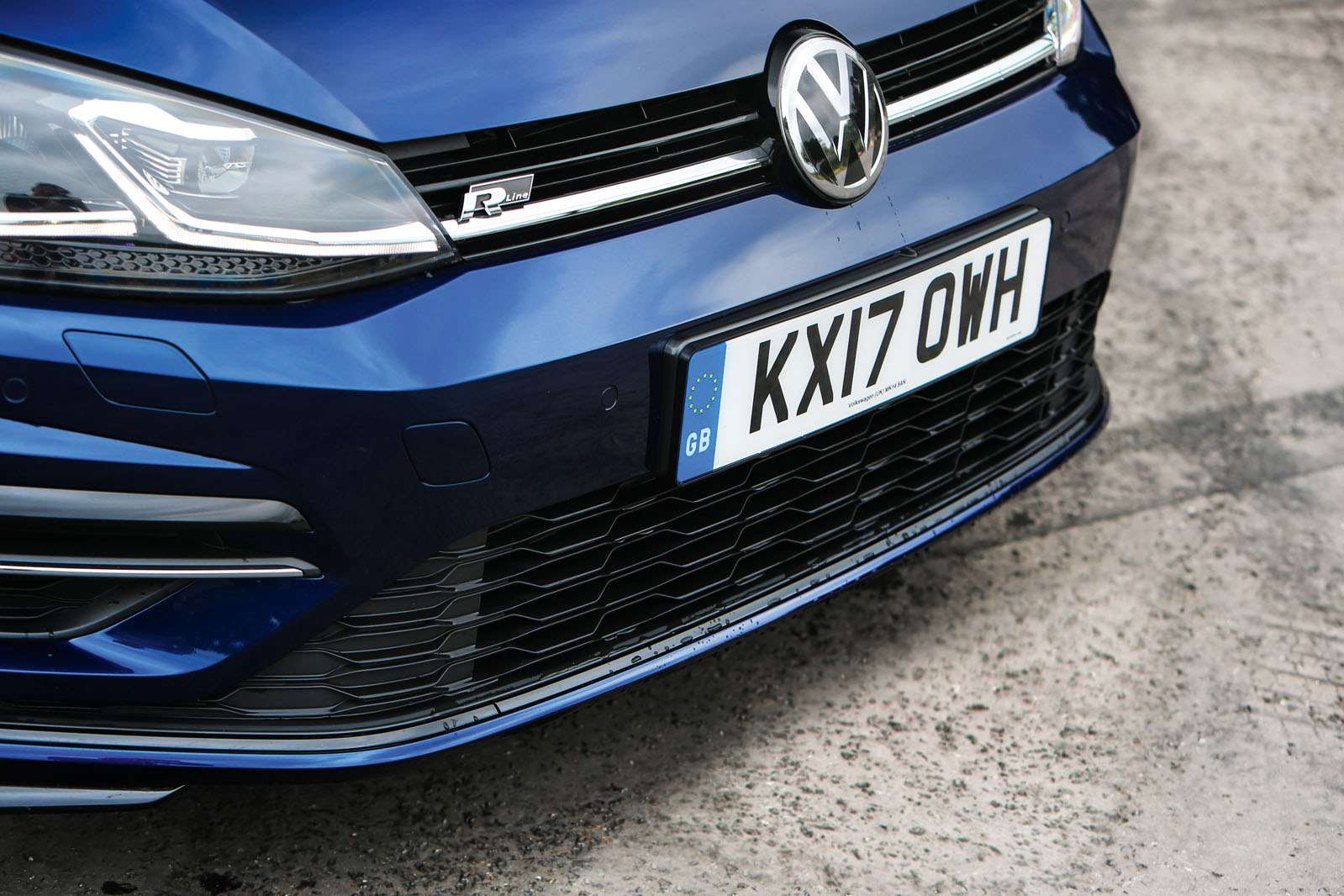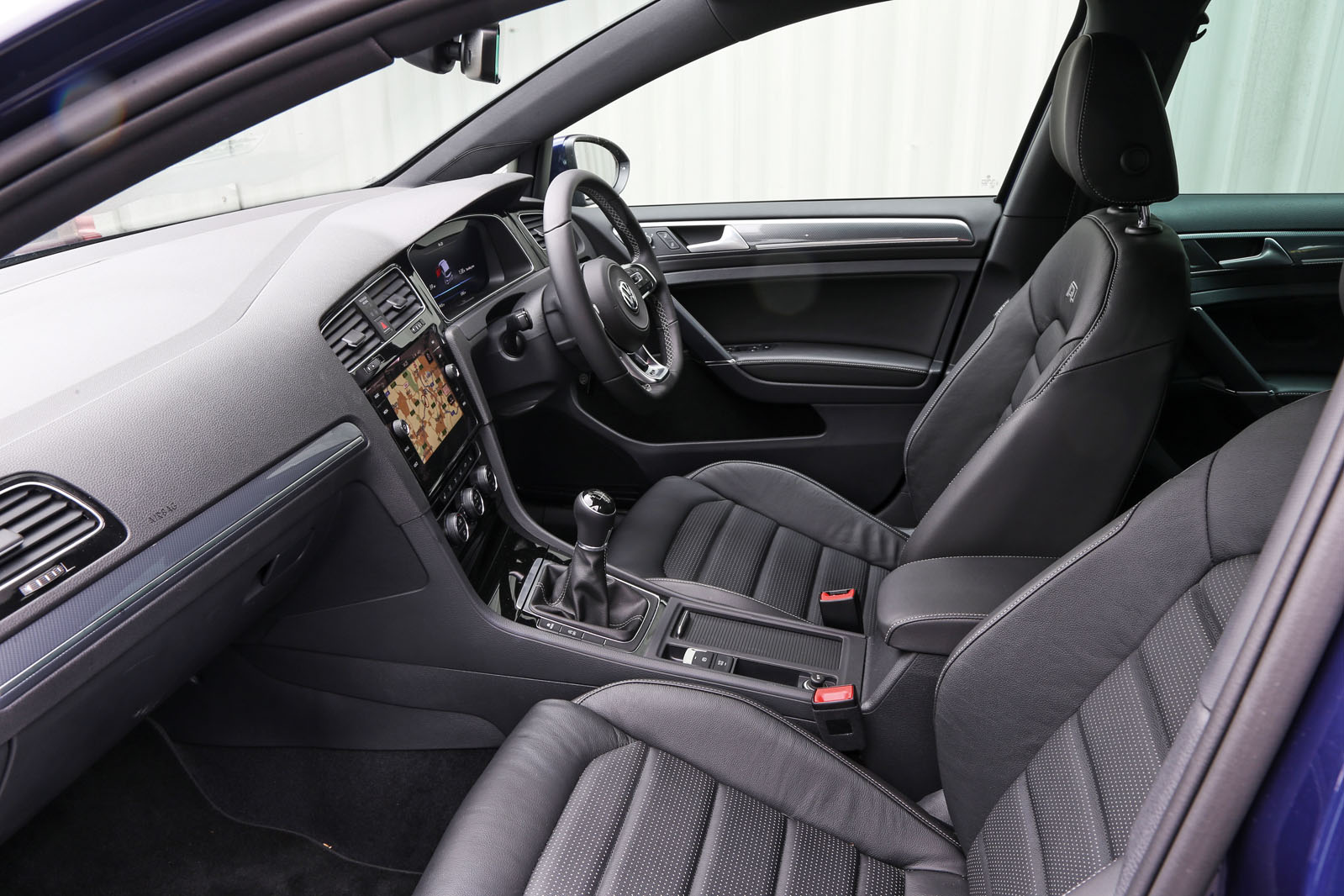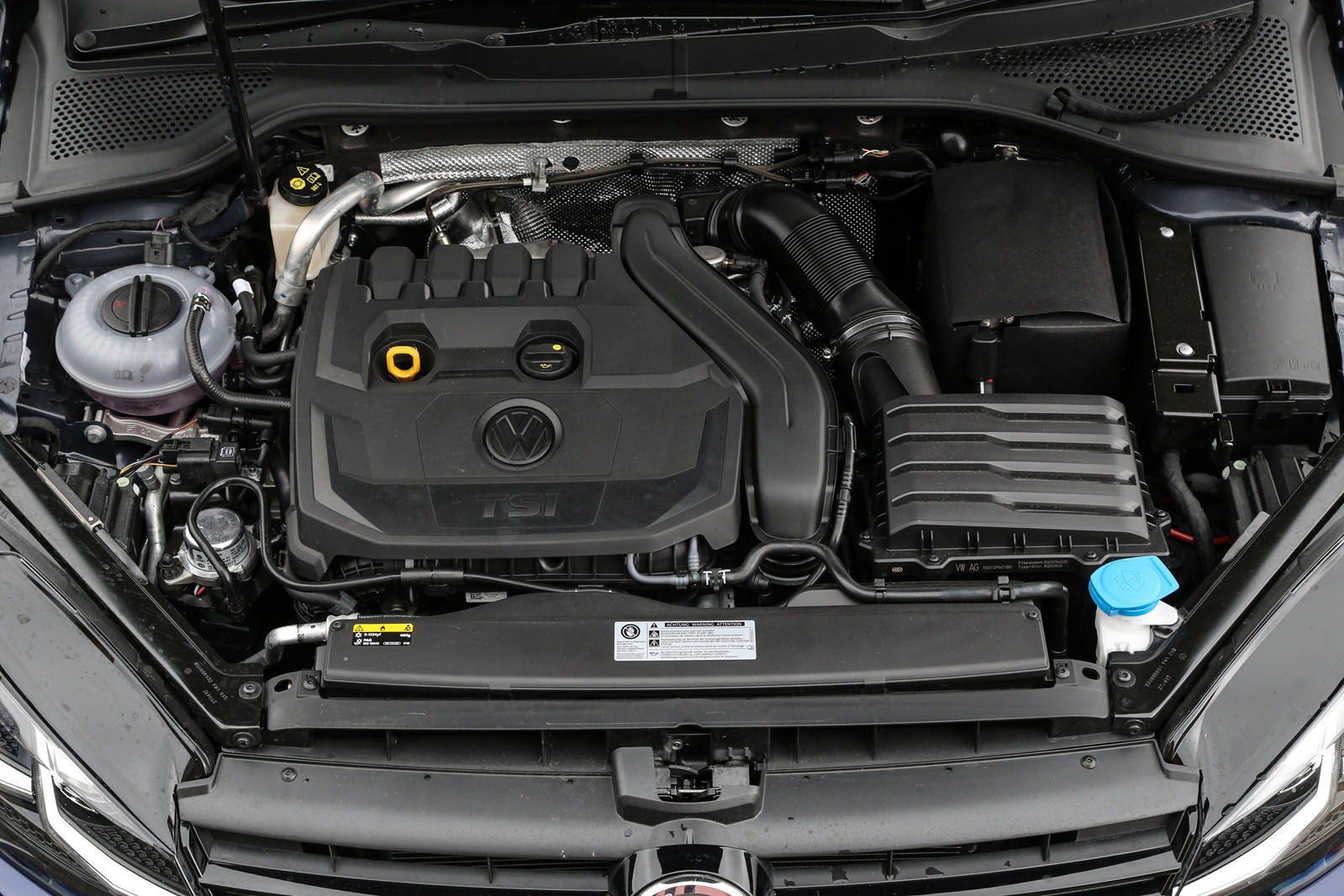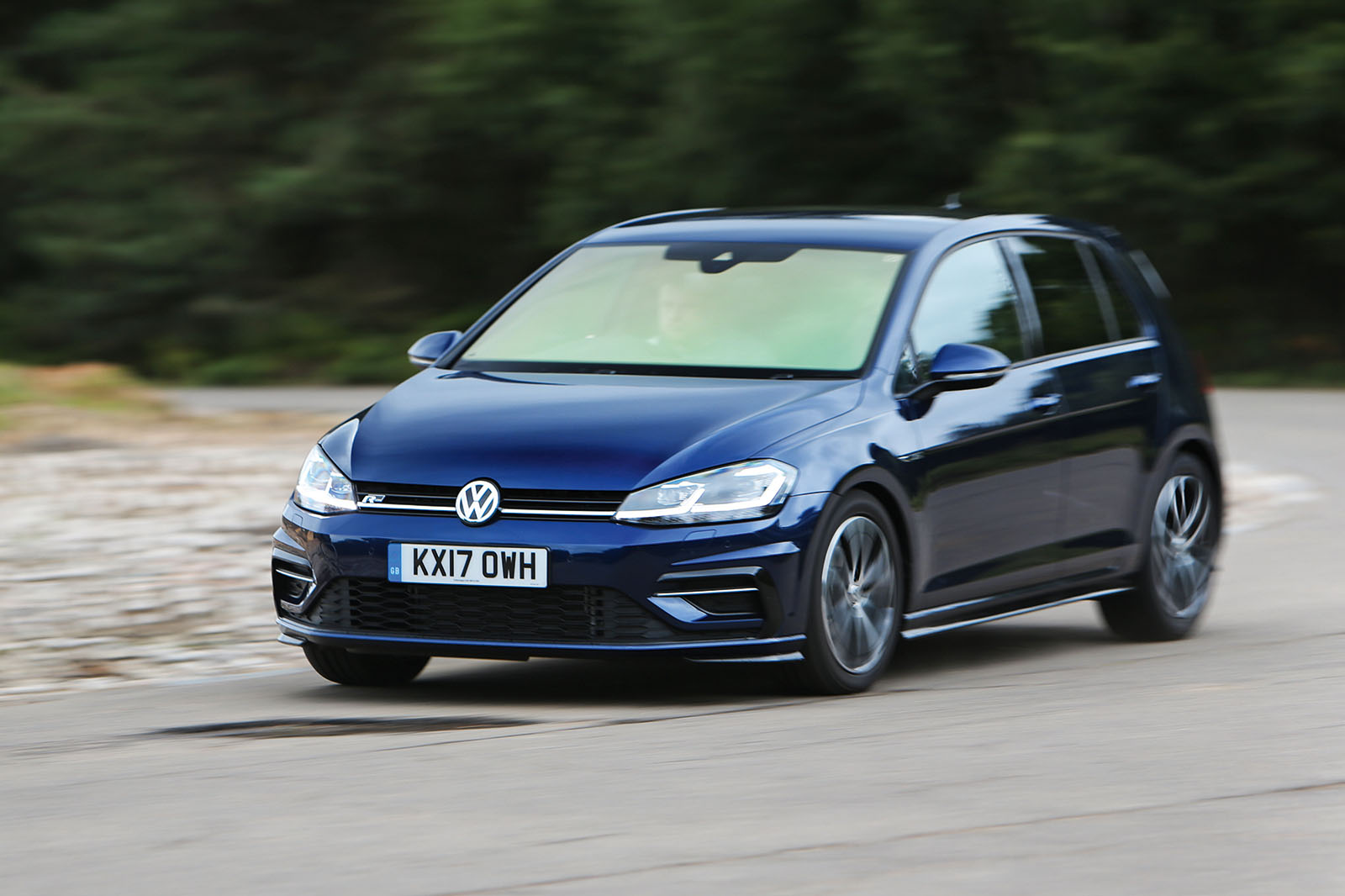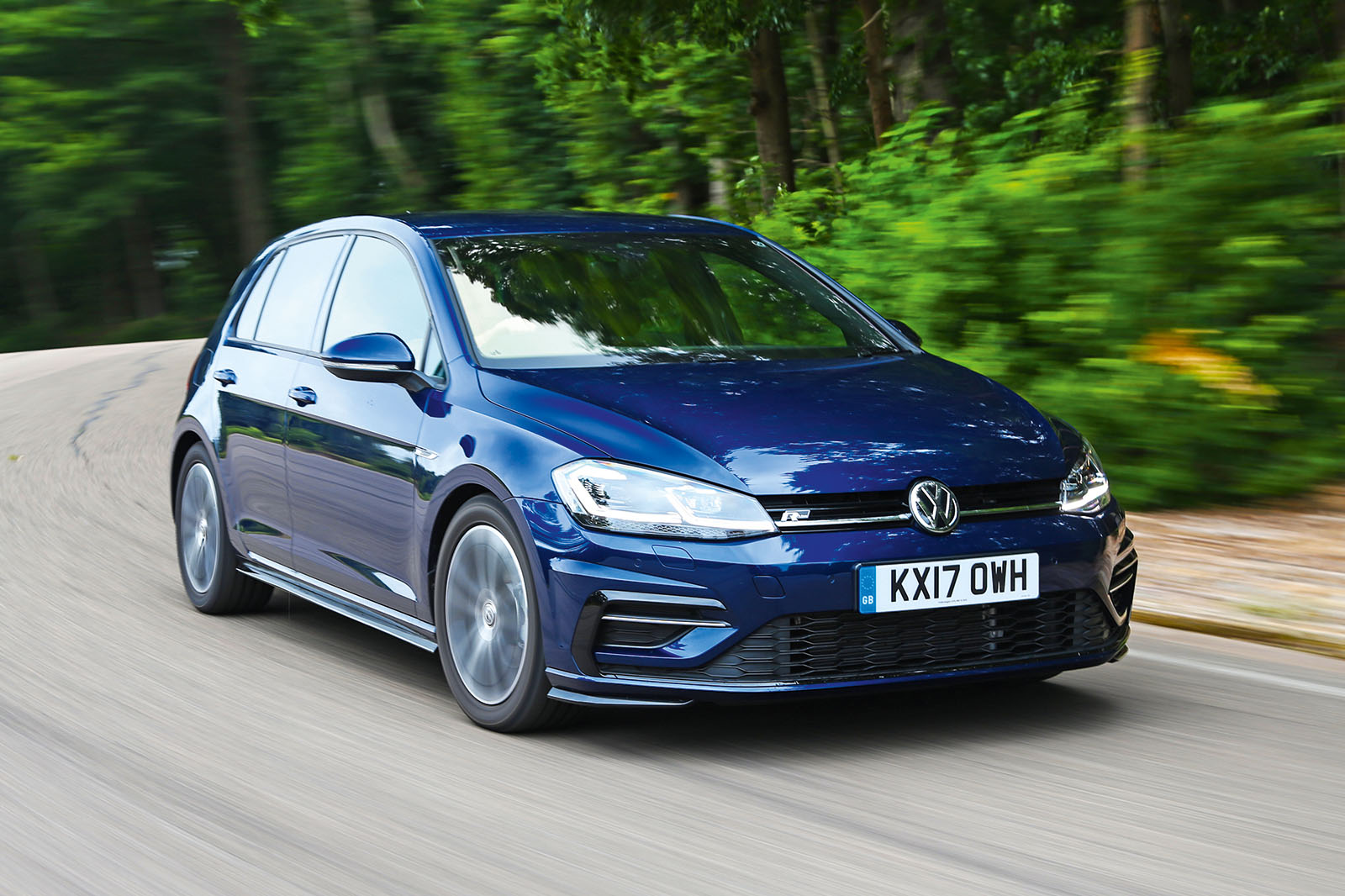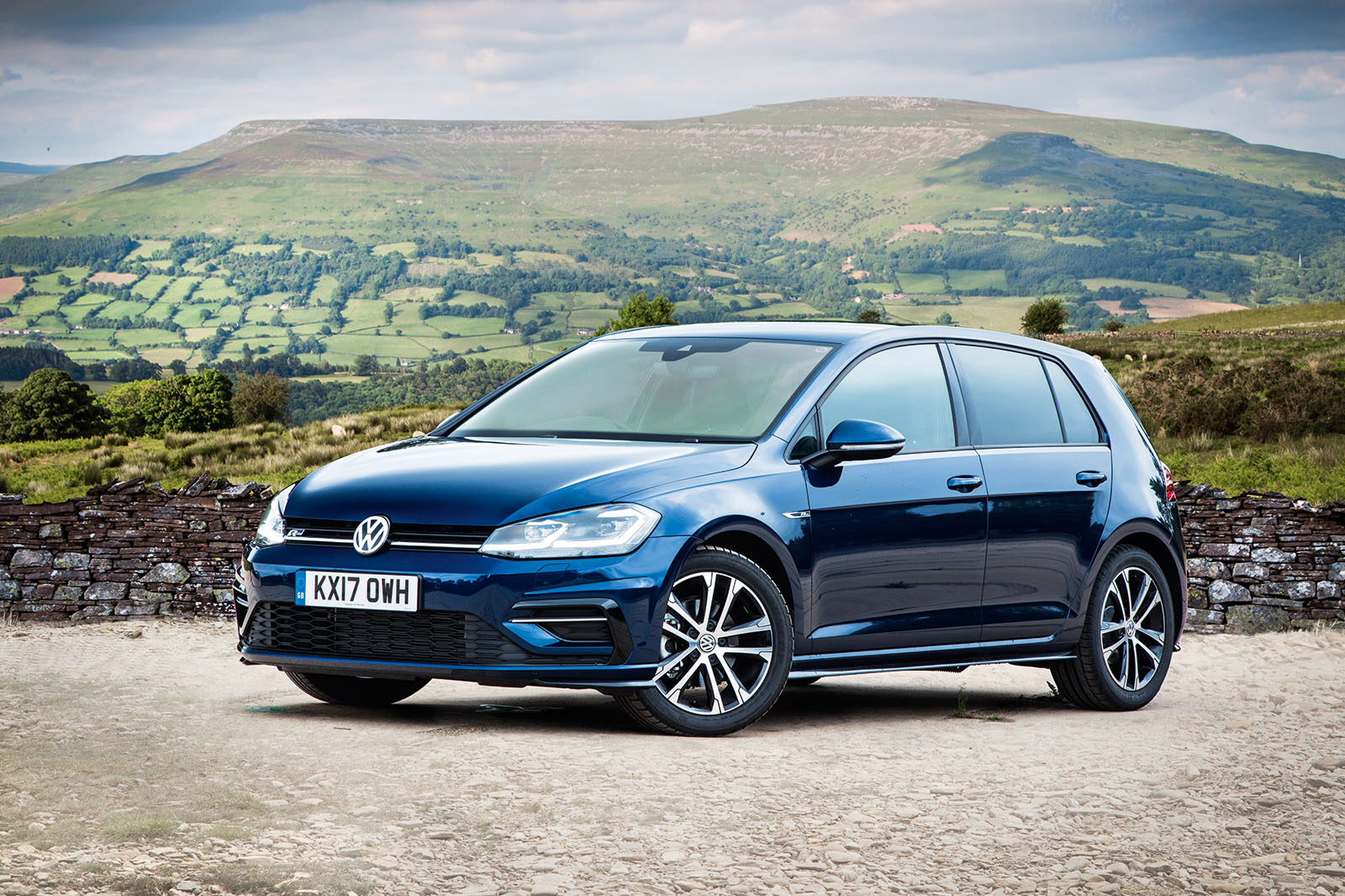The fractional nature of the advancement of Golf generations is nowhere more apparent than on the inside.
VW has swapped out a few panels here and there and conscientiously fiddled with the infotainment – but, to all intents and purposes, this is much the same prospect that started toddling off the Wolfsburg line in 2012.
Knowledge of that fact, though, diminishes the quality of the surroundings not one jot. The Golf remains the über-hatchback, effortlessly outclassing the surrounding mainstream and casting doubt on the functional credibility of any C-segment option priced above it.
In the high-spec format tested here (which includes £1900 worth of Vienna leather upholstery), it barely contains an edge that has not been softened or smoothed into a caress.
The Audi A3 is more self-consciously stylish, certainly, and the Skoda Octavia just as forthright in its usability, yet the Golf somehow manages to make the middle ground between the two seem like the perfect compromise of bottom-line cost and understated taste.
This latest version’s noticeable embellishments – the uprating of the dashboard-mounted infotainment system and the new option of a fully digital instrument cluster – merely feed
into the established ambience.
Volkswagen’s gradual rolling refresh of the MQB platform’s infotainment offerings makes the same medium-sized splash in the Golf as it has elsewhere.
The impact is not larger because the existing system was already highly functional and the replacement doesn’t seek to drastically overhaul its layout.
The previous physical shortcut buttons have been expunged in favour of on-screen options. Without any haptic feedback, these are less satisfying to use but serve the same purpose.
As before, on the 8.0in Discover Navigation (standard on our test car), a limited gesture-sensitive system is used to display additional menu items when it senses your hand in close proximity to the screen.
On the new 9.2in Discover Pro option, this has evolved to include actual selections, including swipes from side to side. This is claimed as a world first in ‘compact’ cars.
The same goes for the car’s proportions (also unchanged). The MQB platform’s driving position is a recognisable equation that we’ve long praised and, behind it, the Golf offers the same carefully considered amount of space: not segment-busting or stingy, just capacious enough to make it a consummate swallower of four adults (five at a push) without objective doubt.
The well-trimmed boot space still fills out your expectations, too (at 380 litres with the seats up and 1270 litres with them down) and comes equipped underneath with that increasingly rare item: a standard spacesaver. But then it would: rationality and technological reassurance are the copper-bottomed Golf guarantee.


